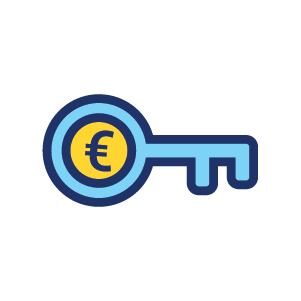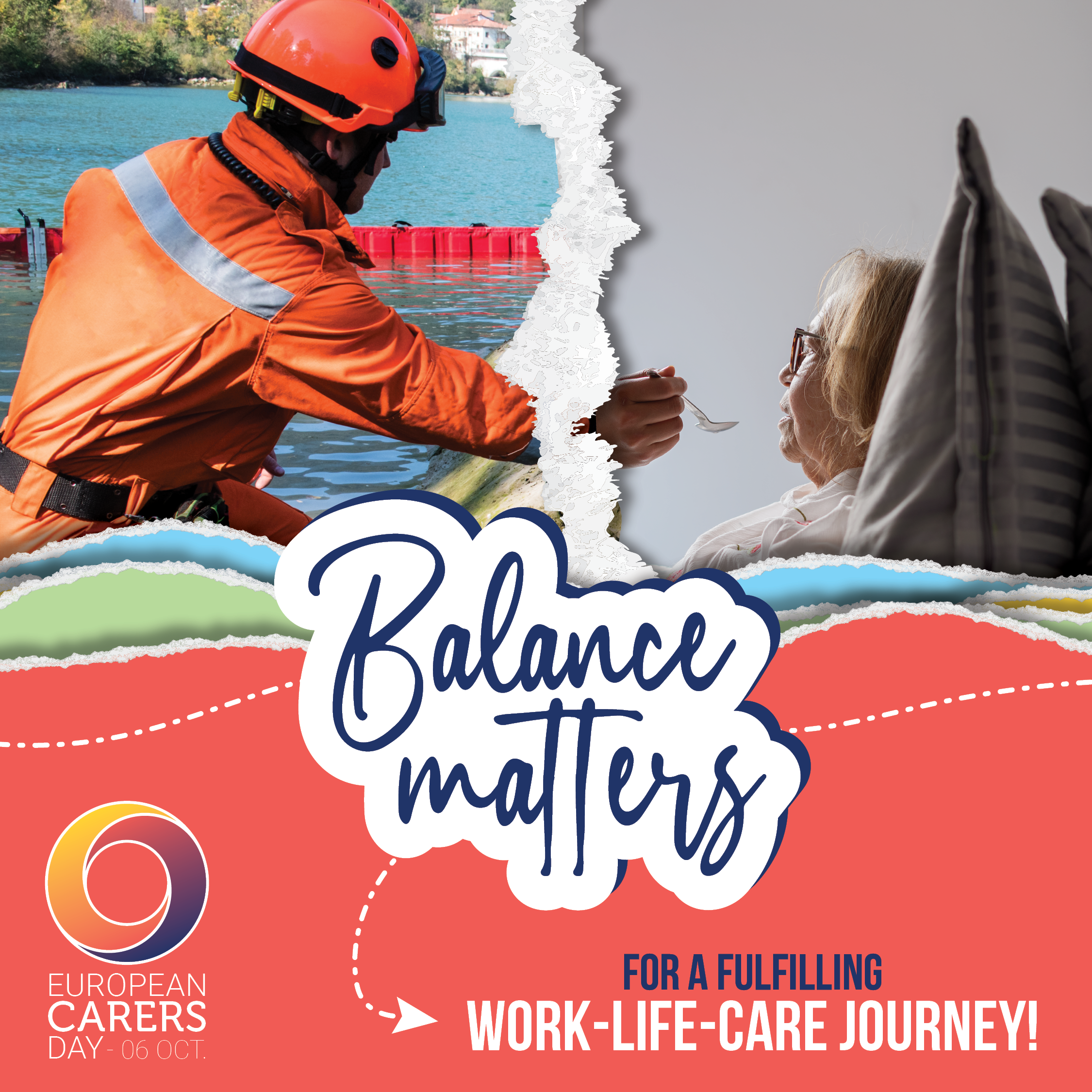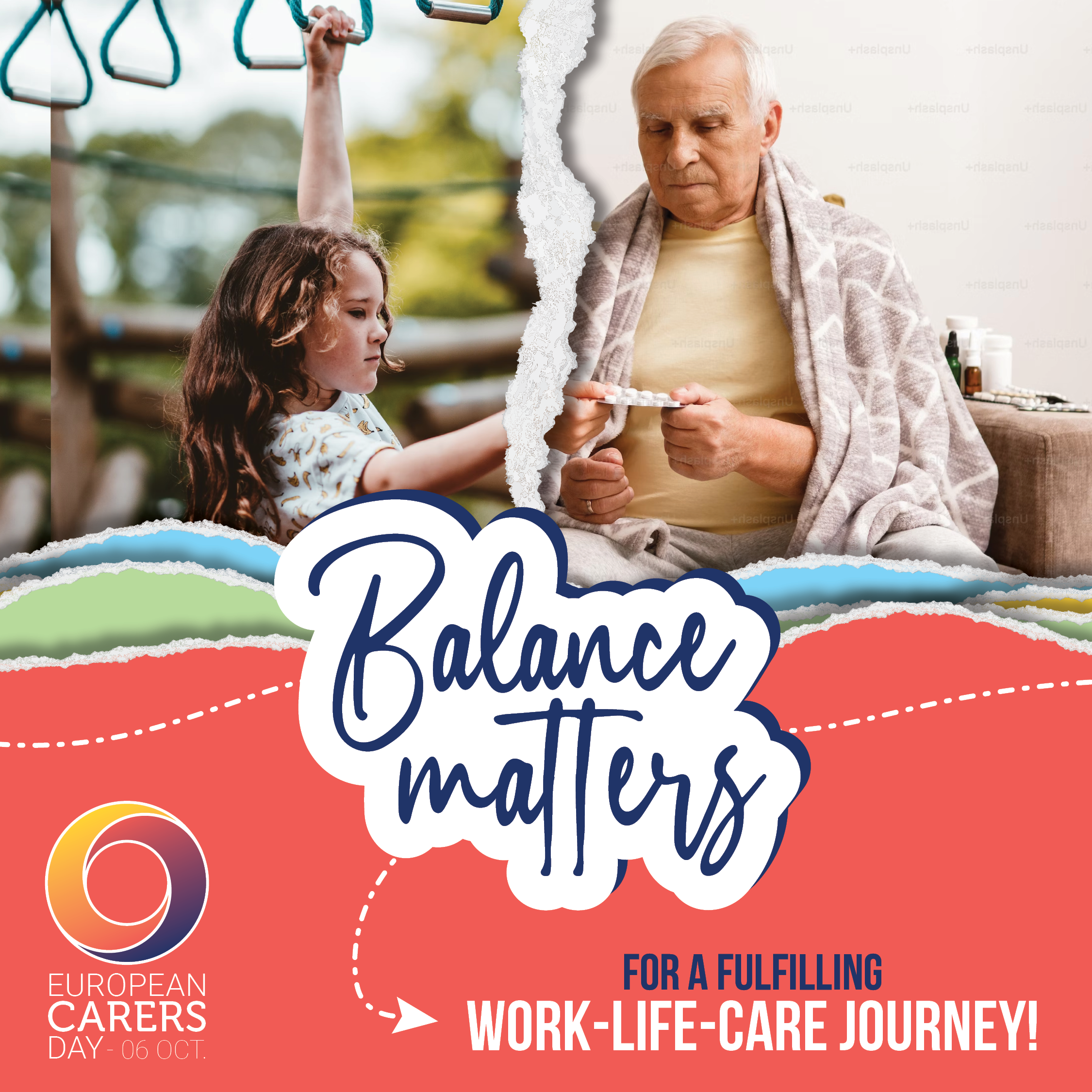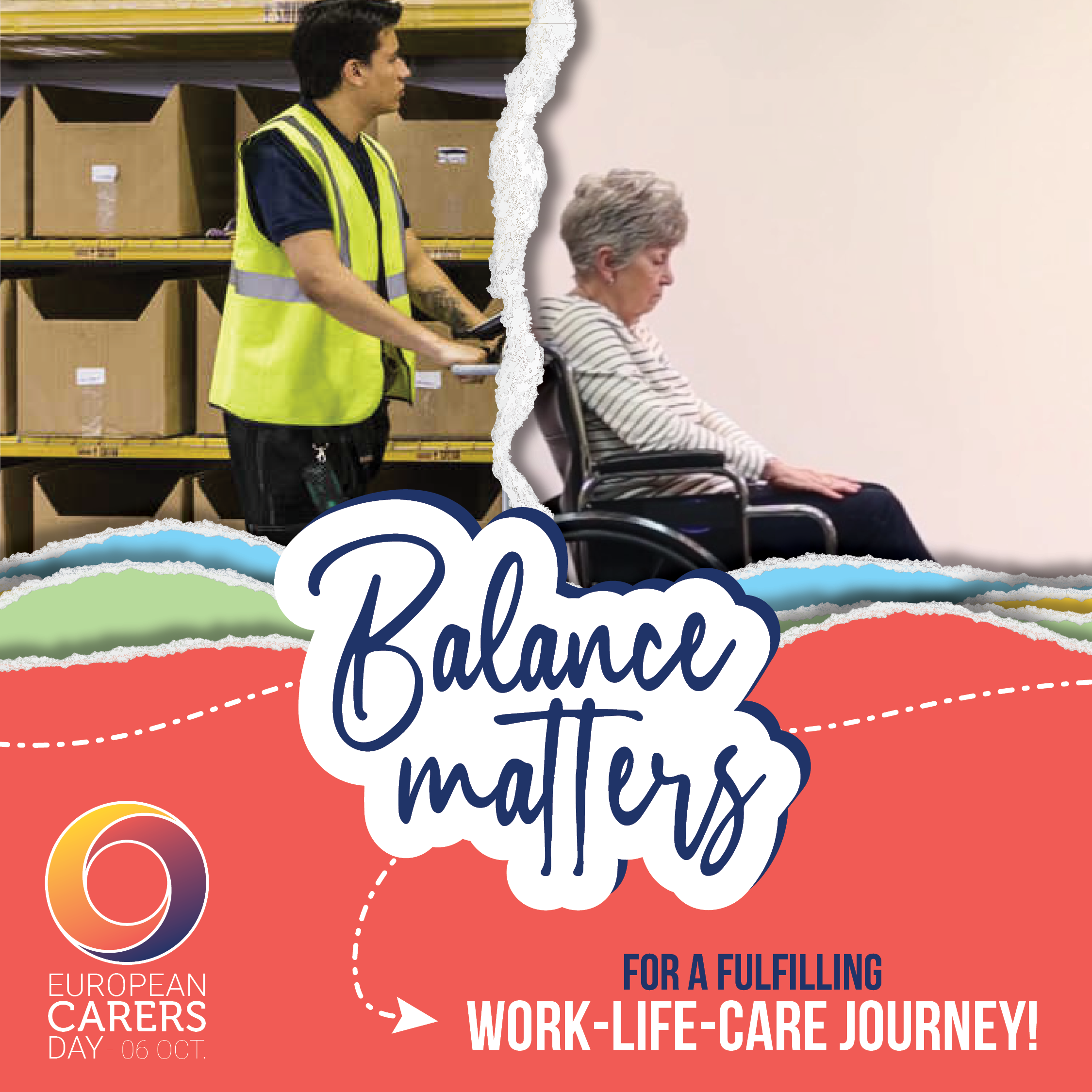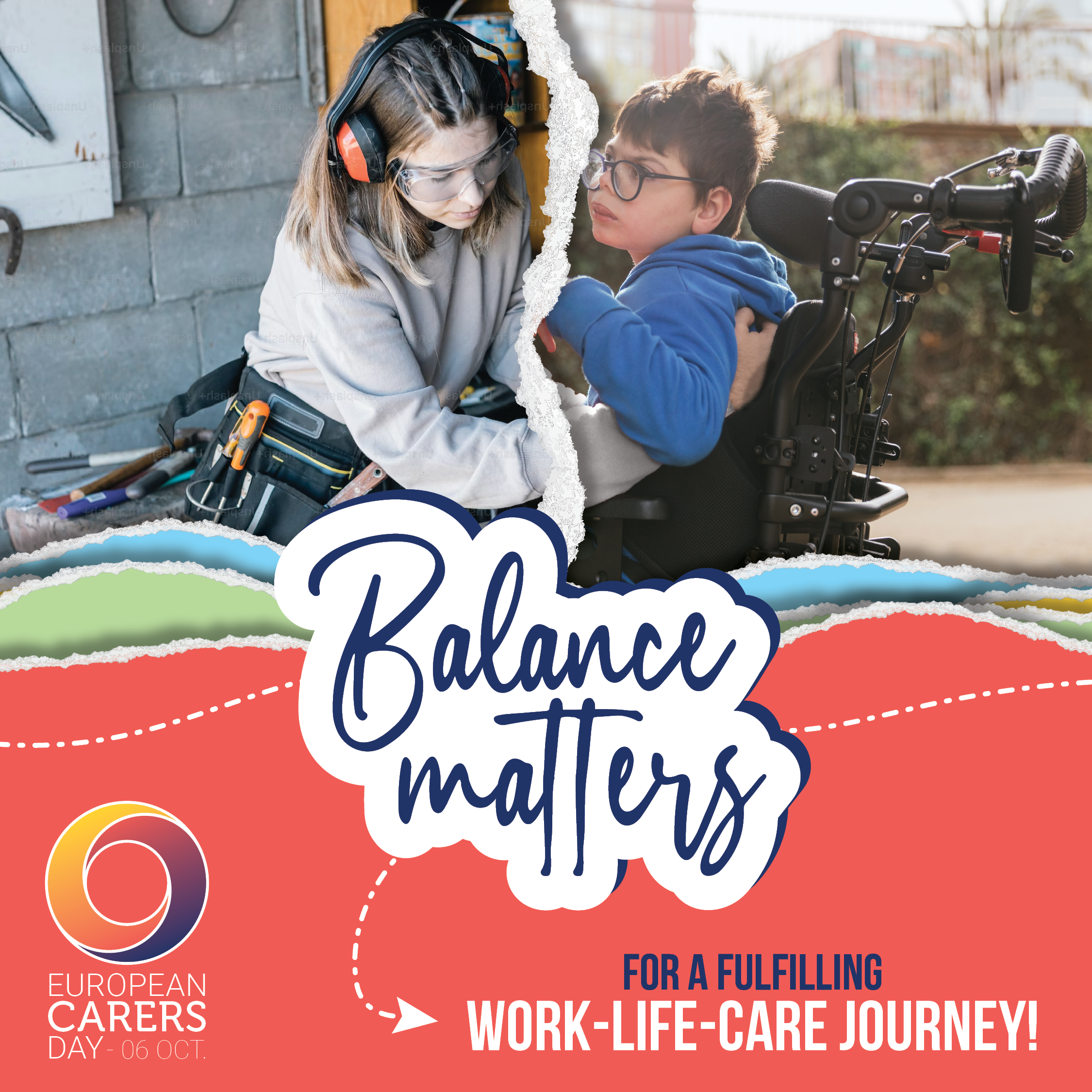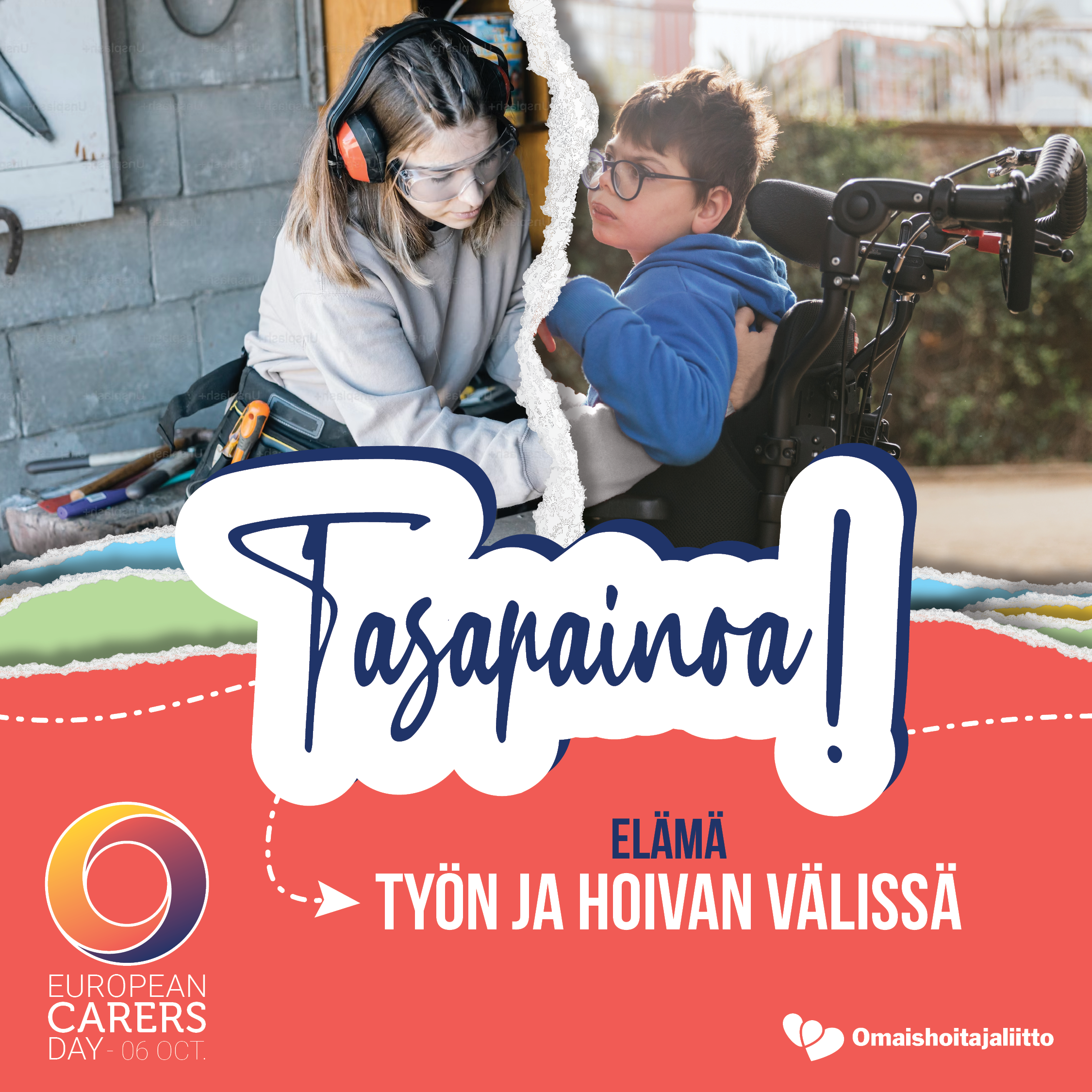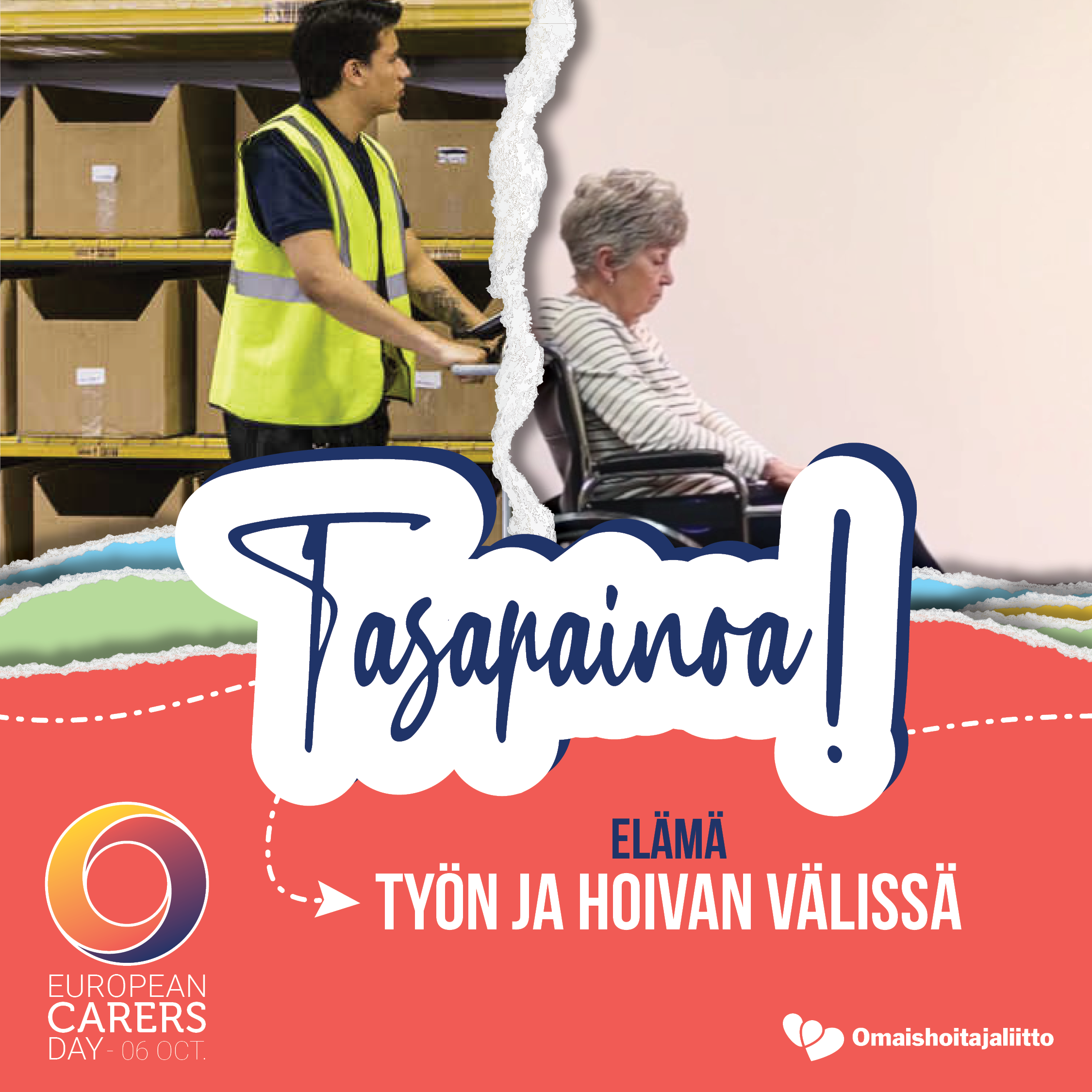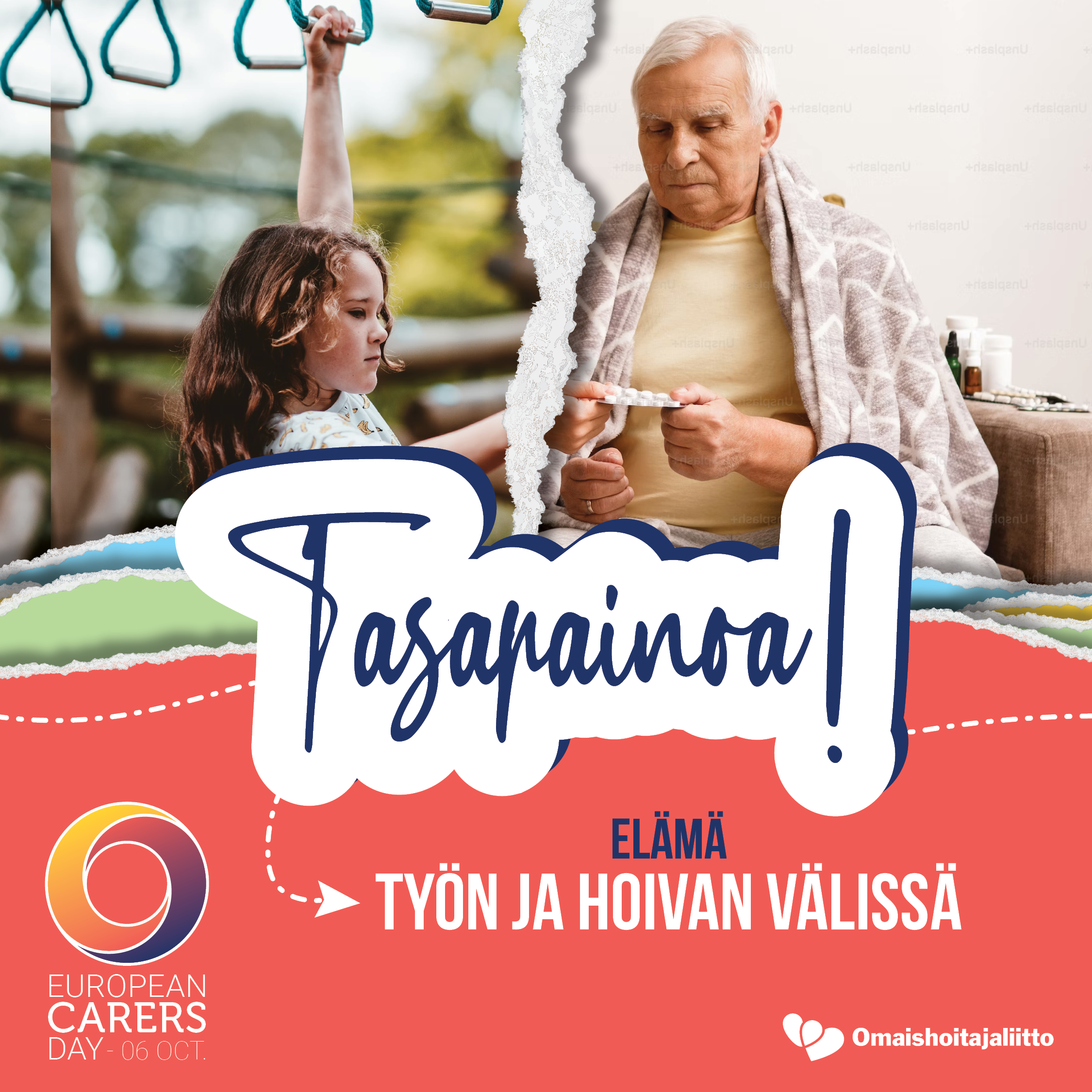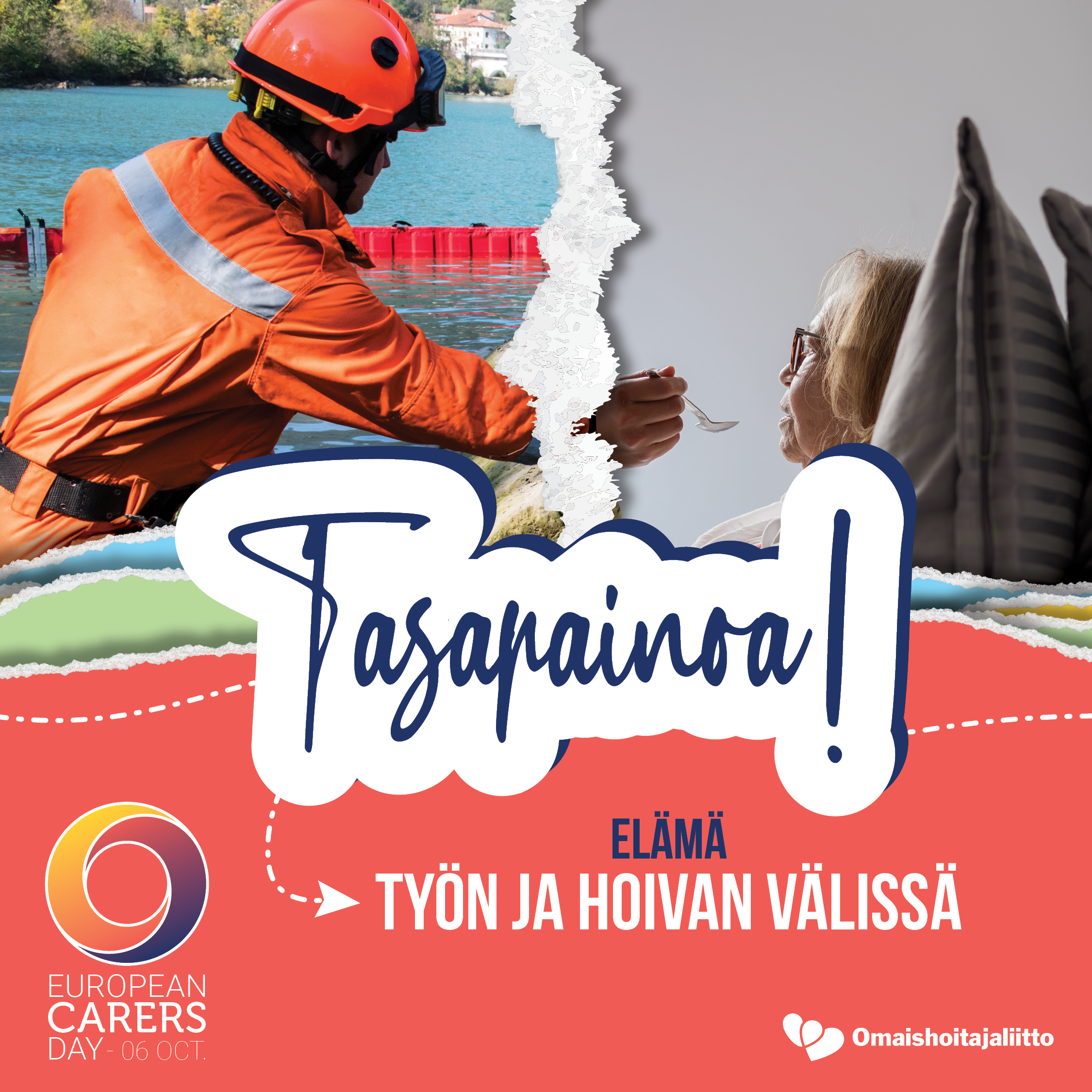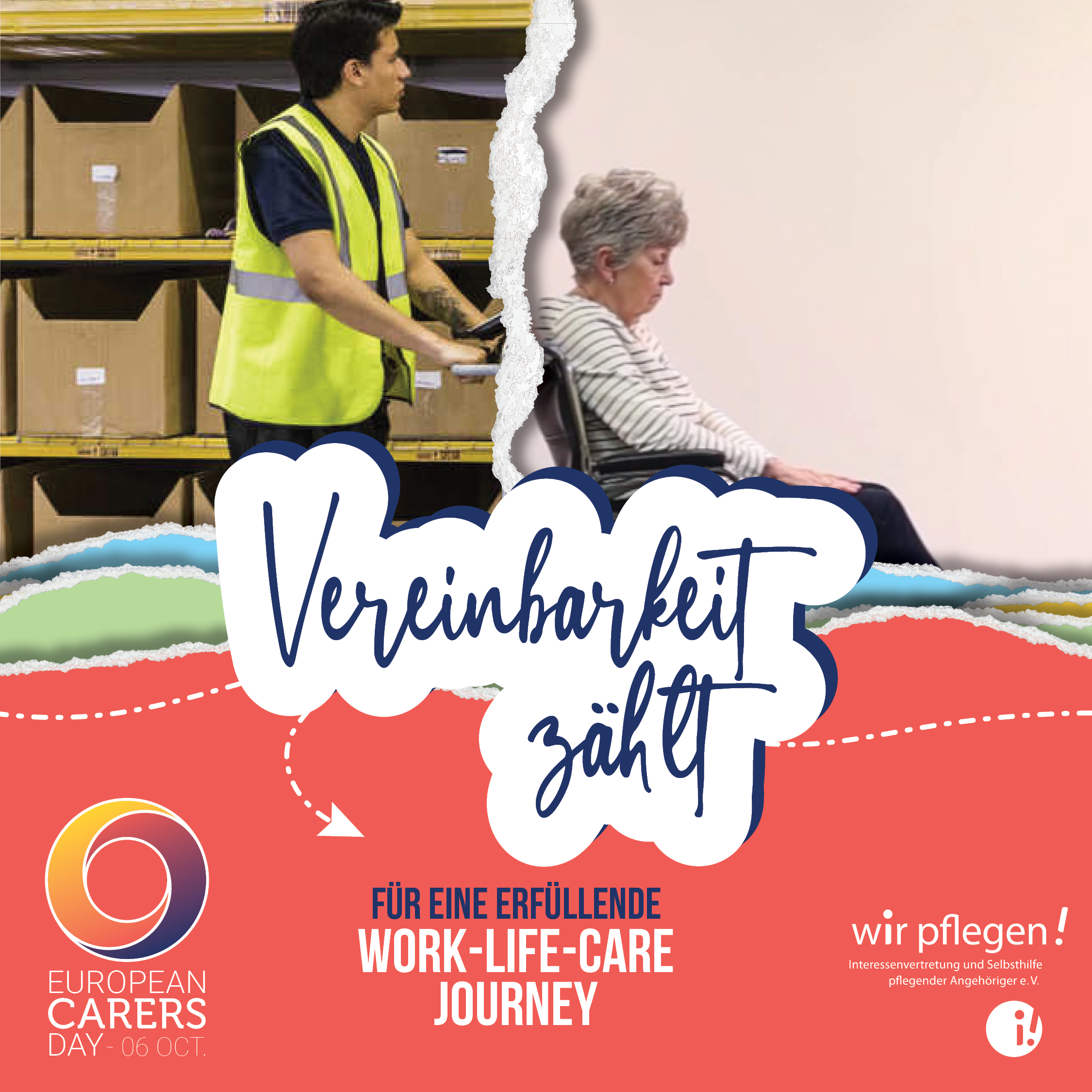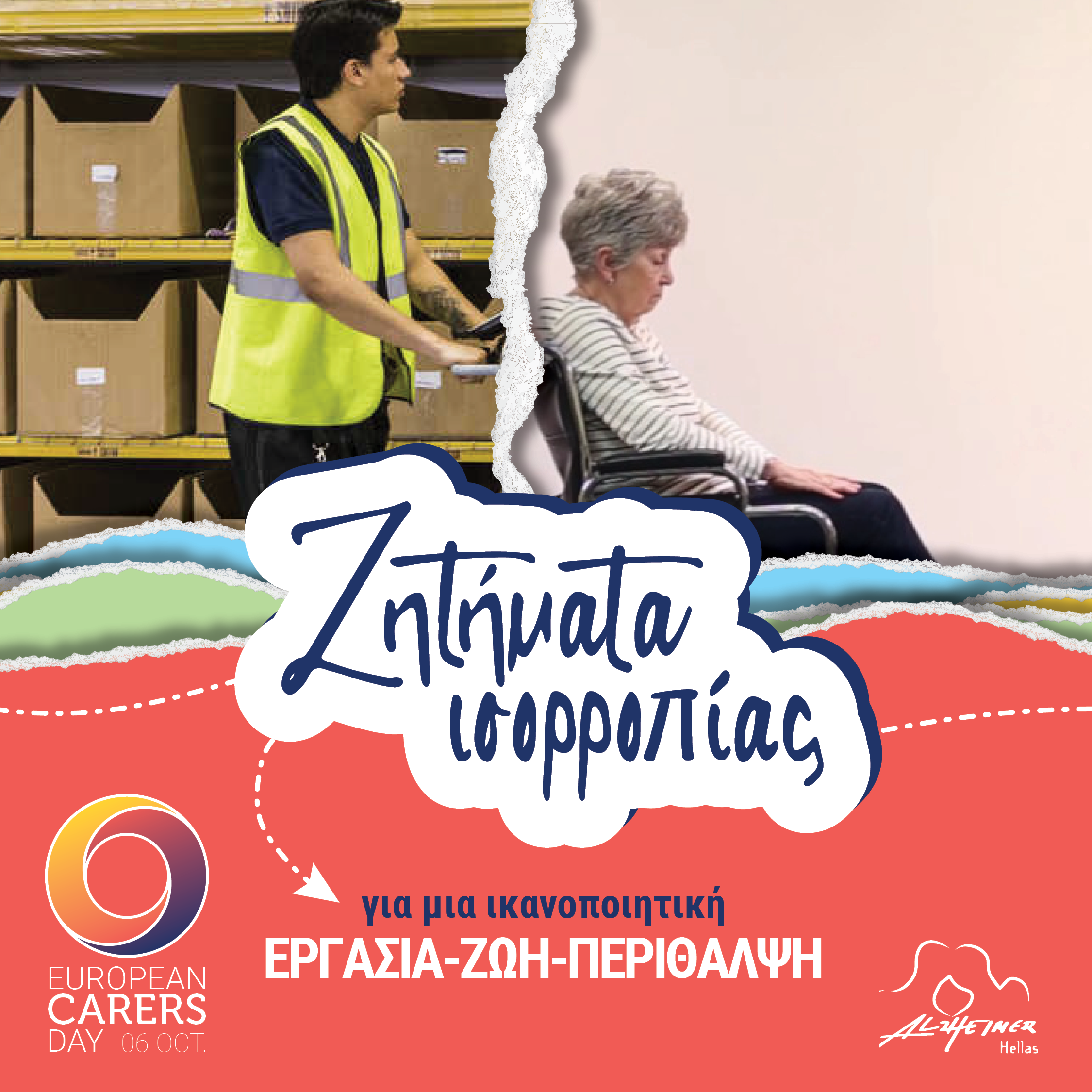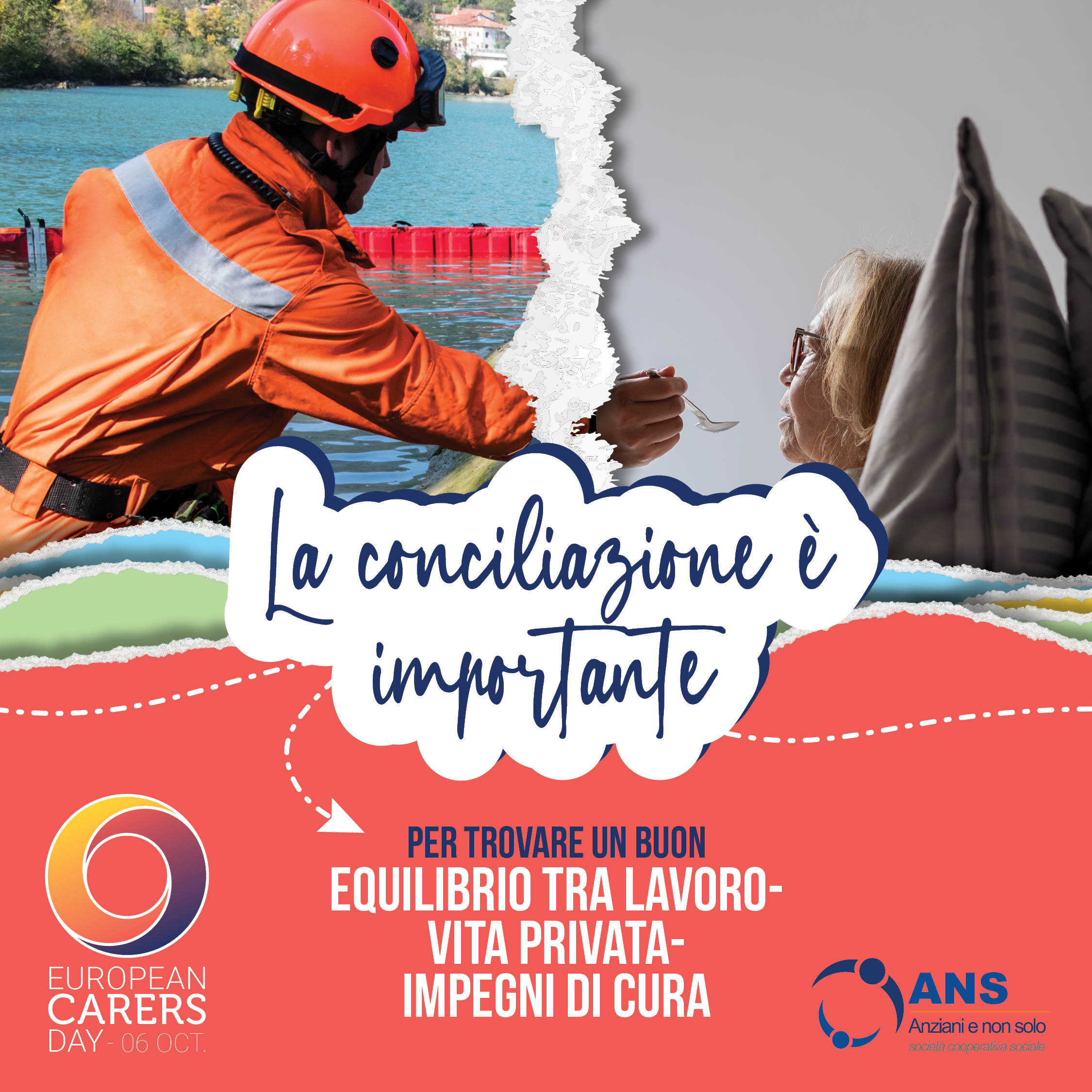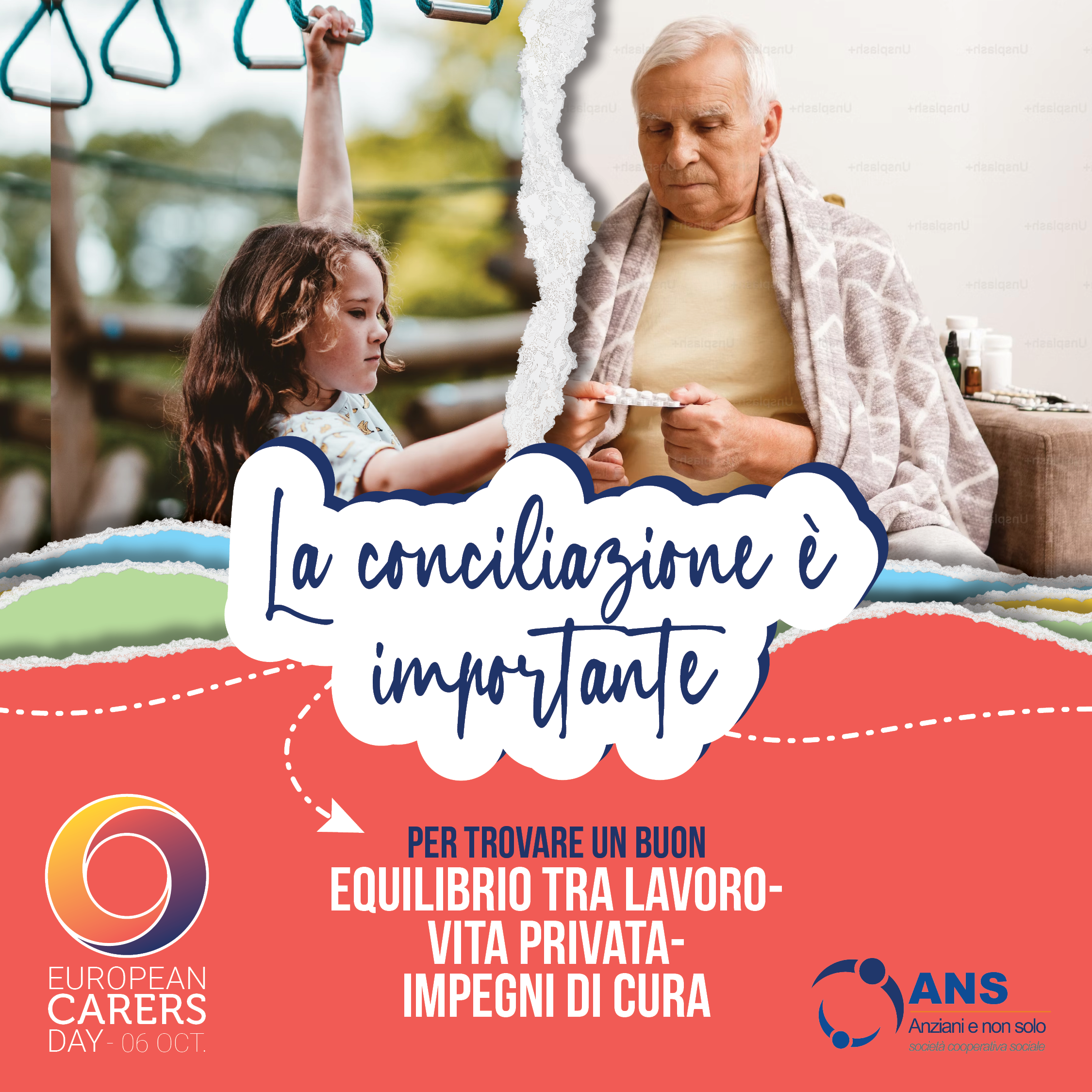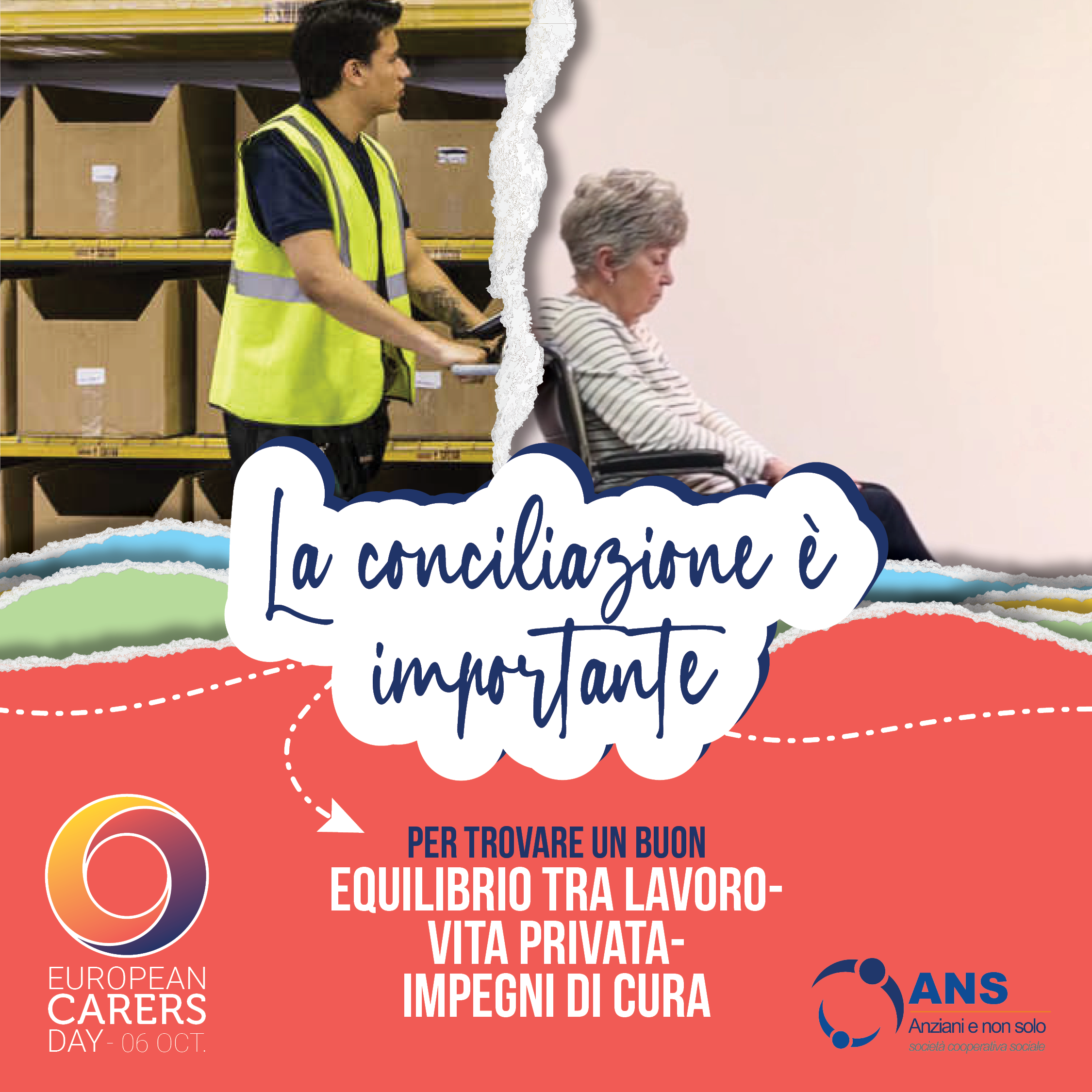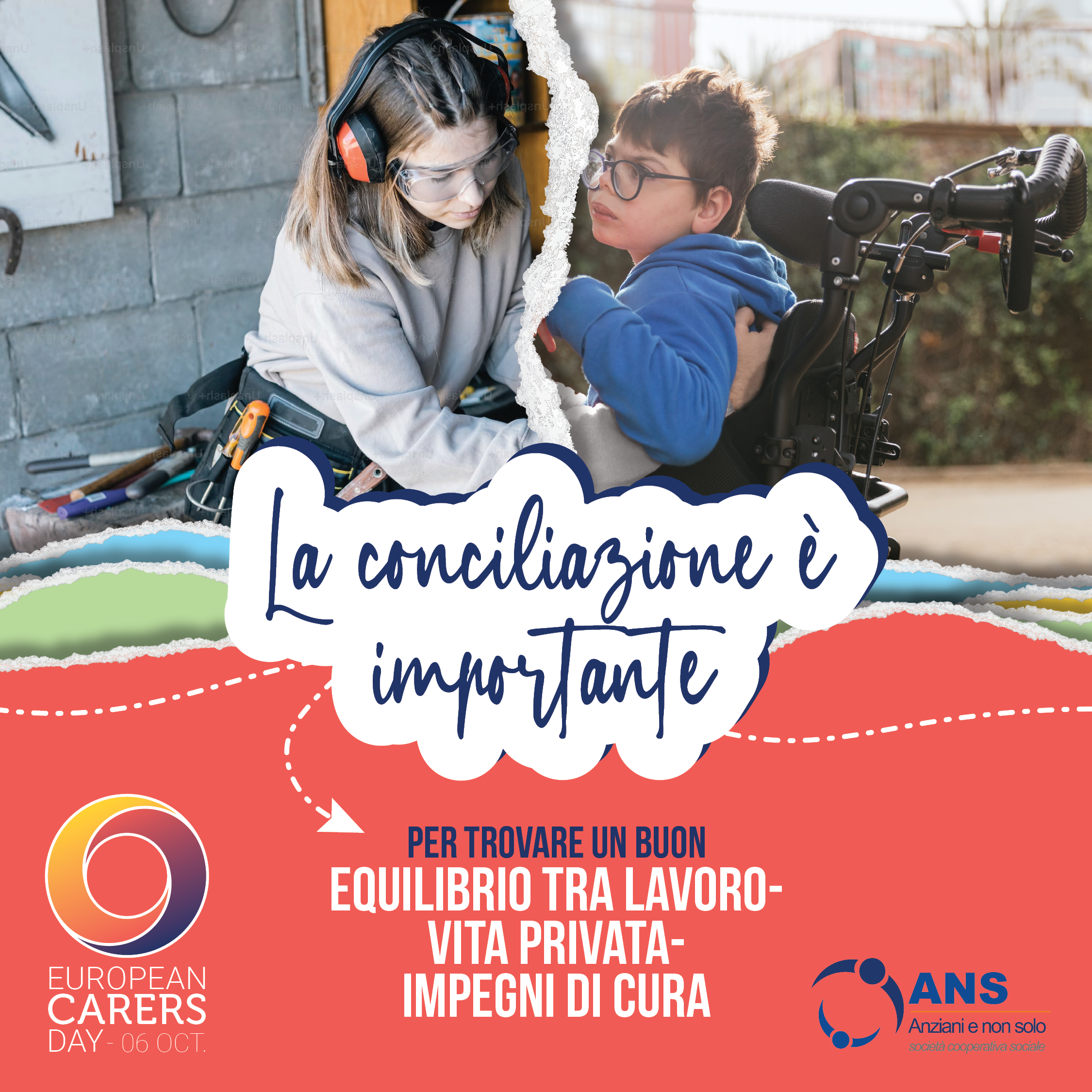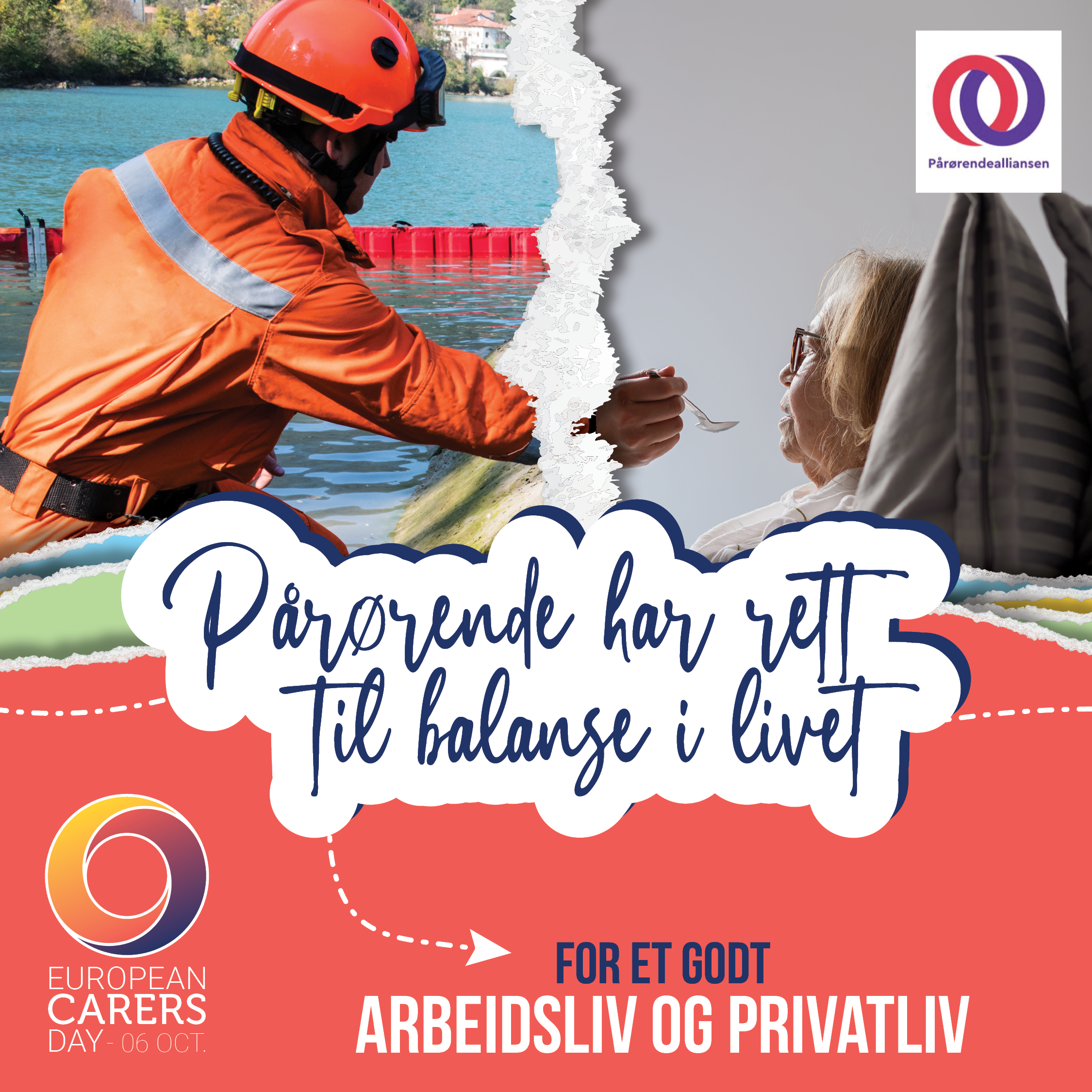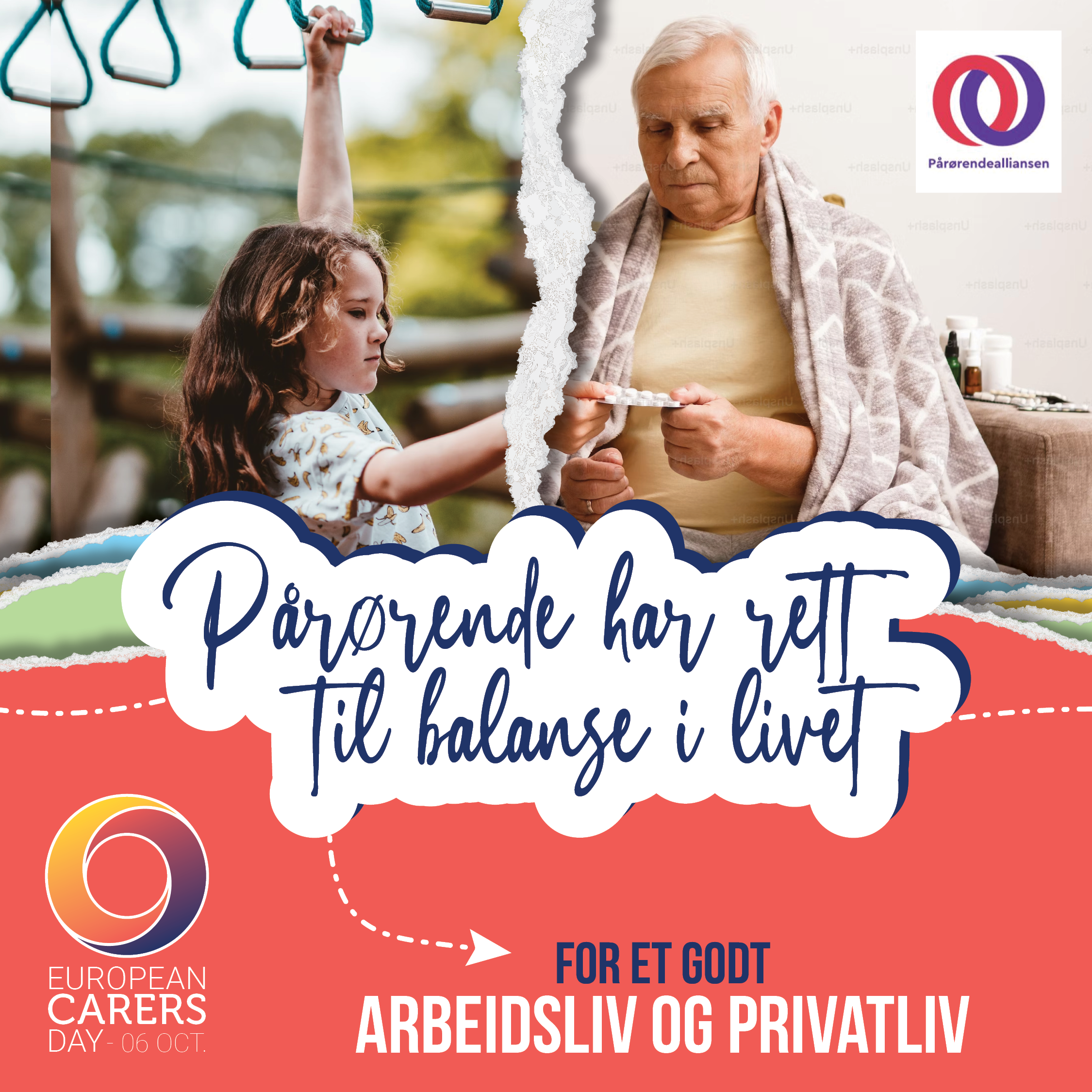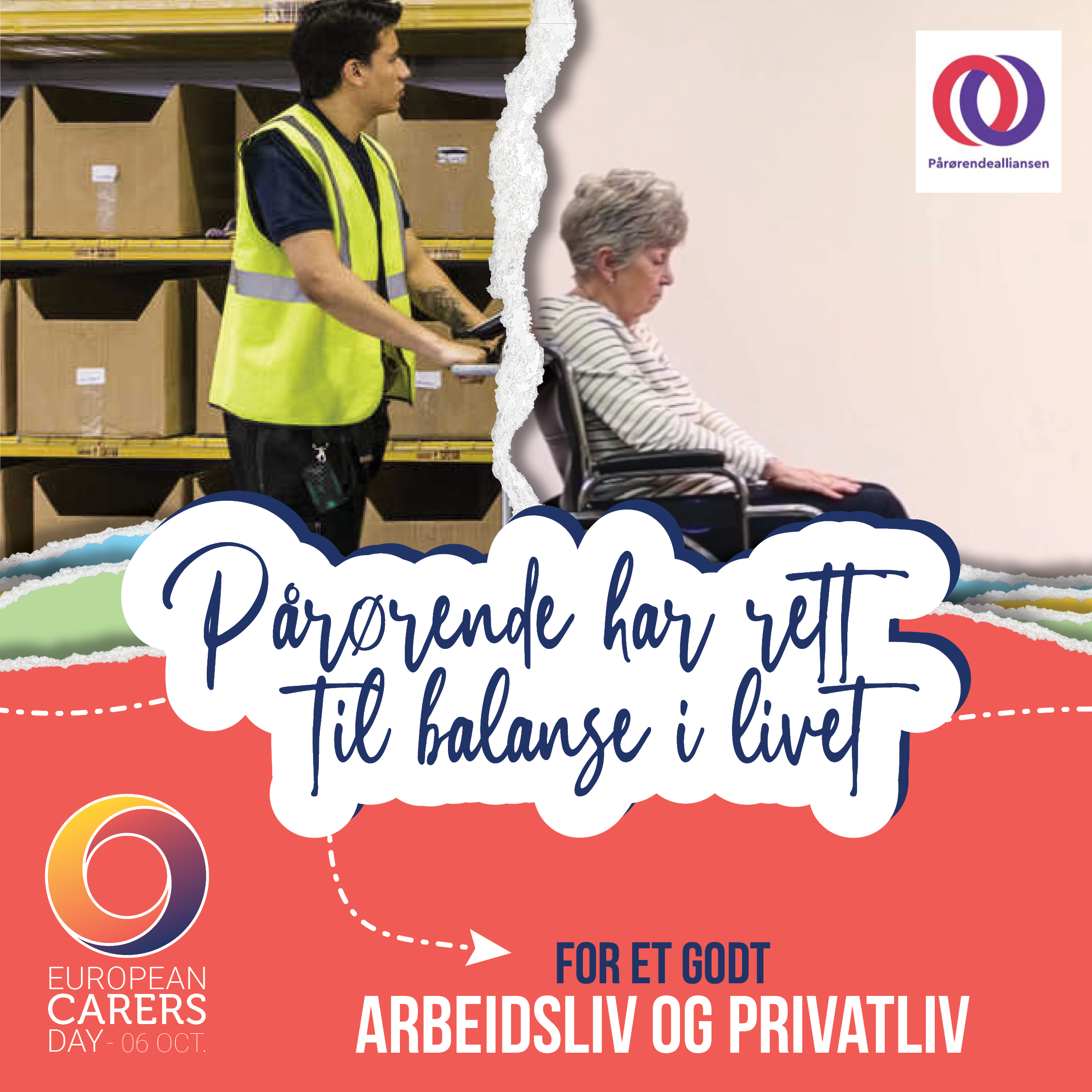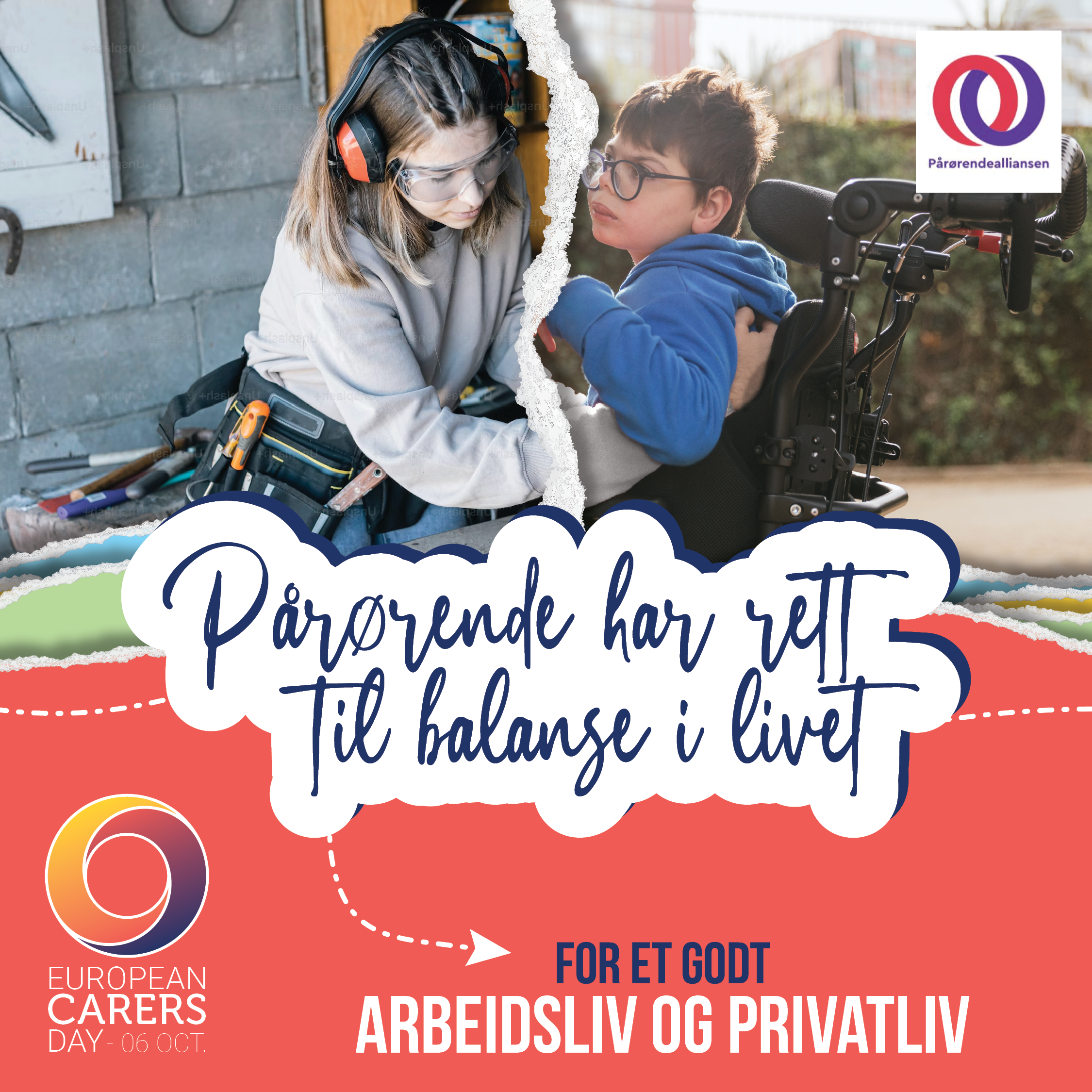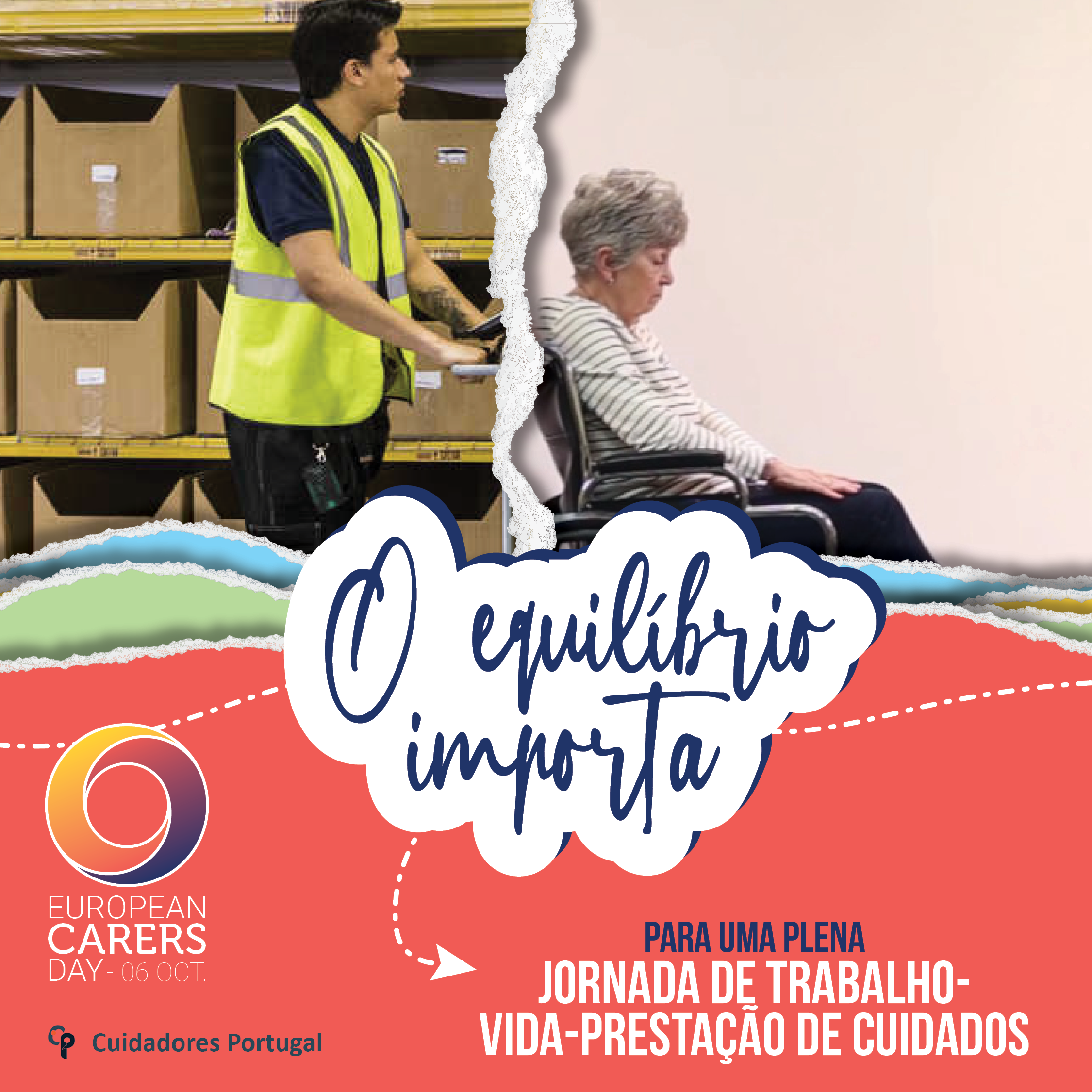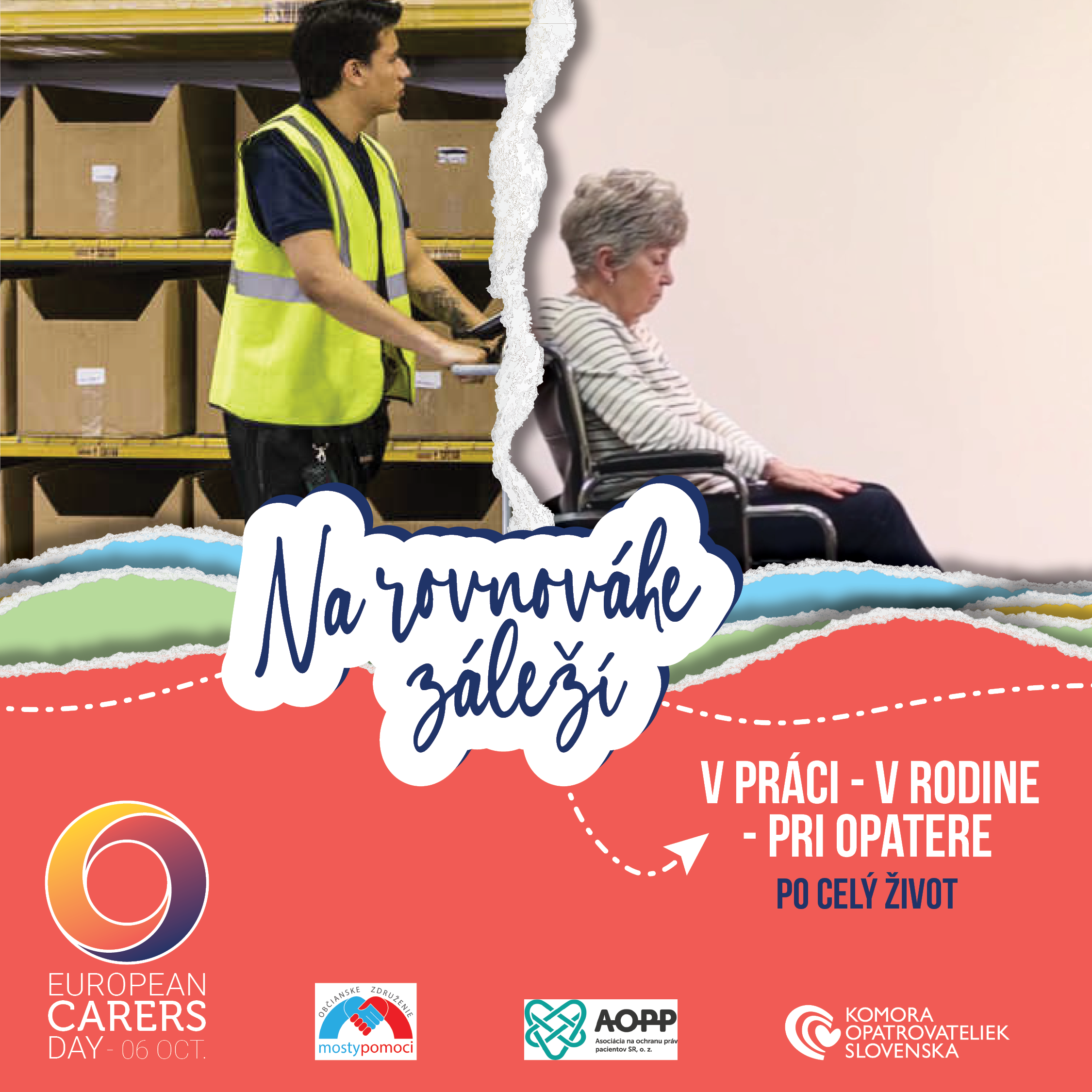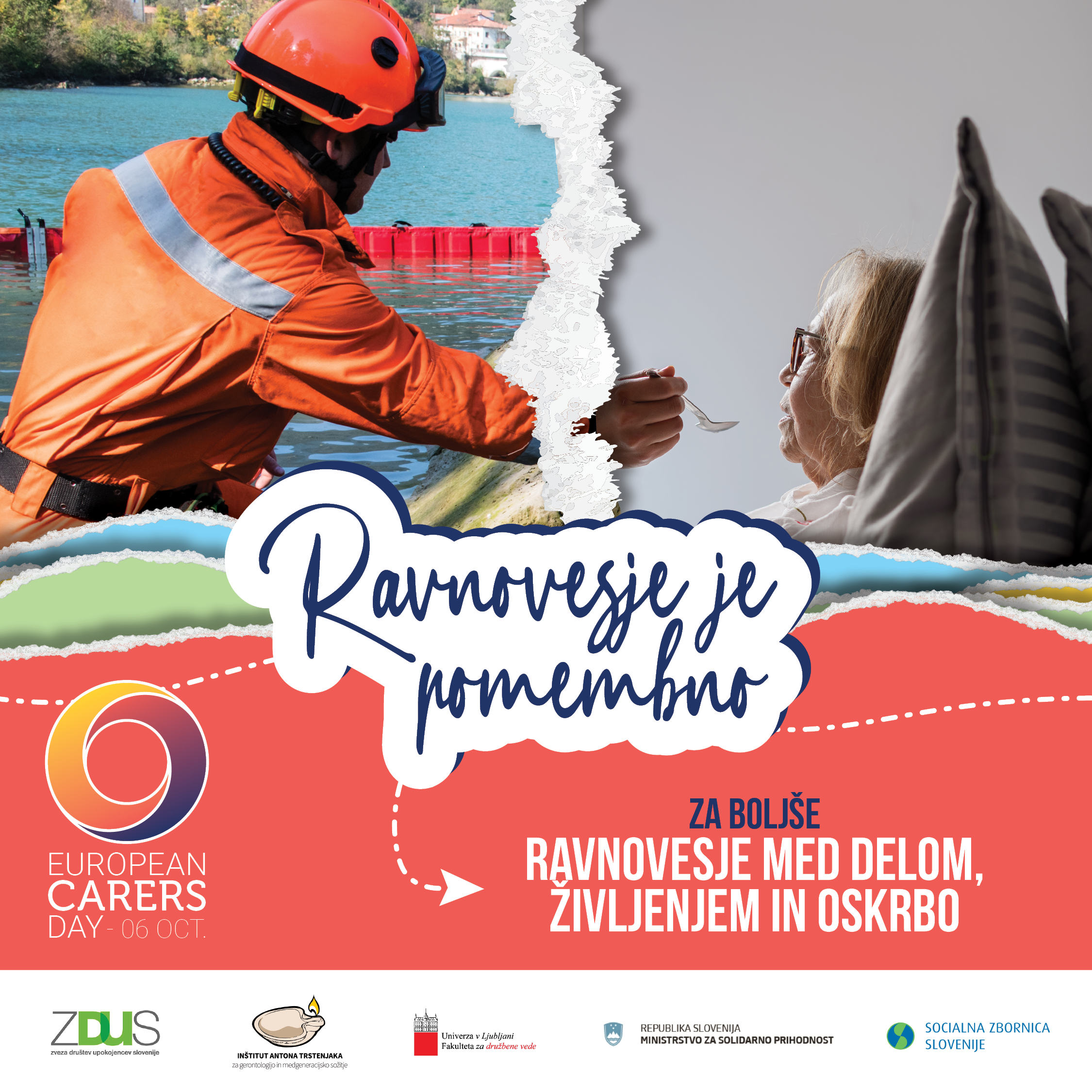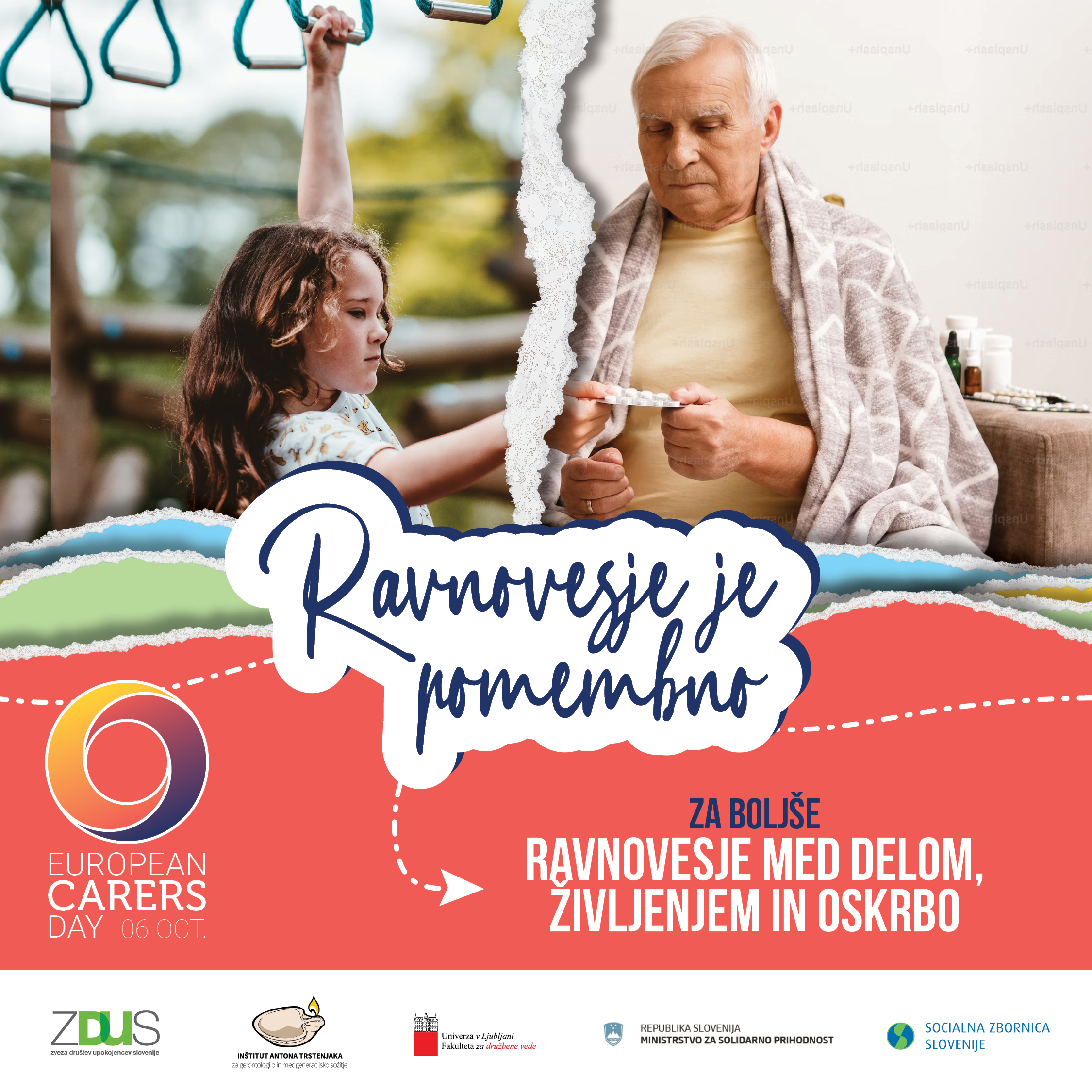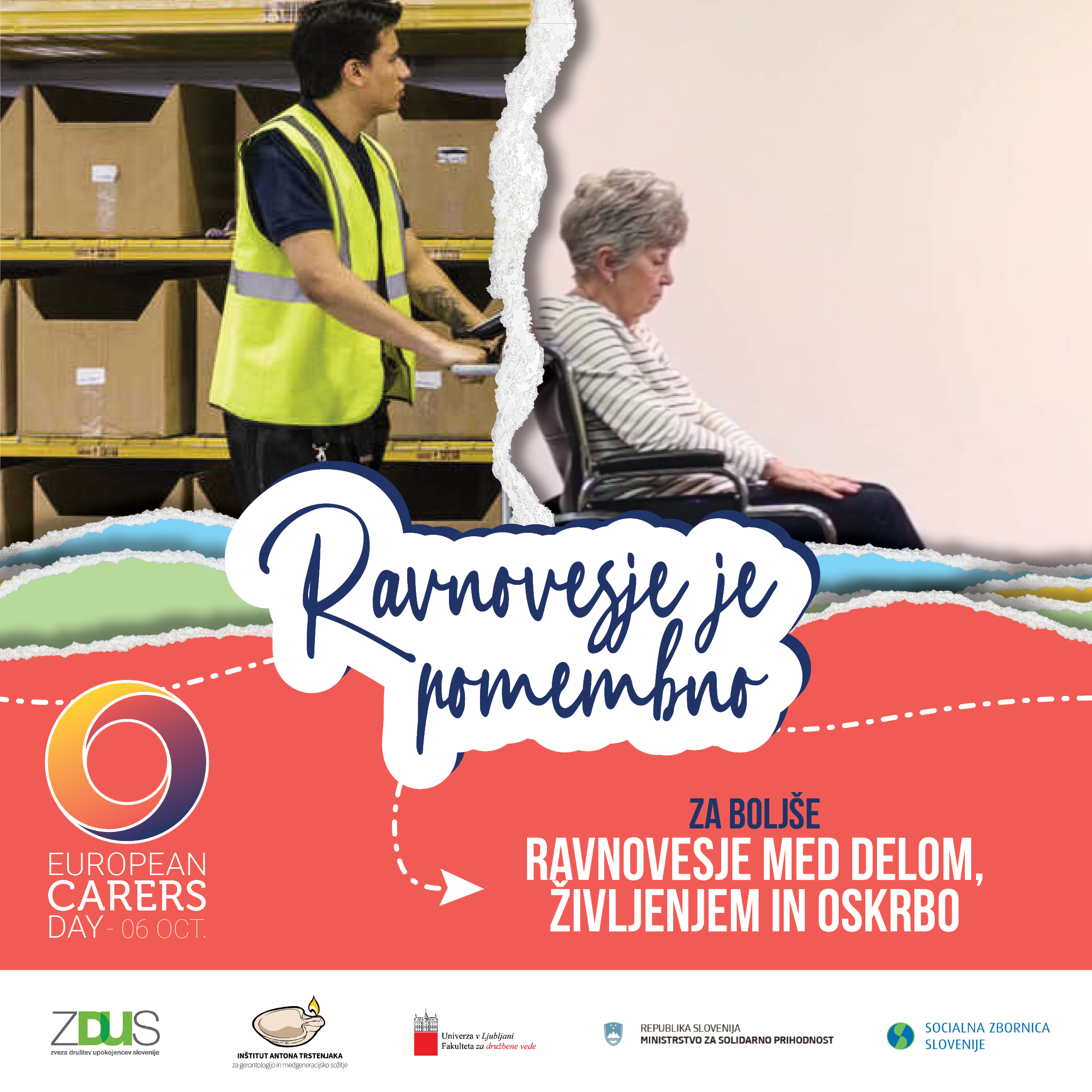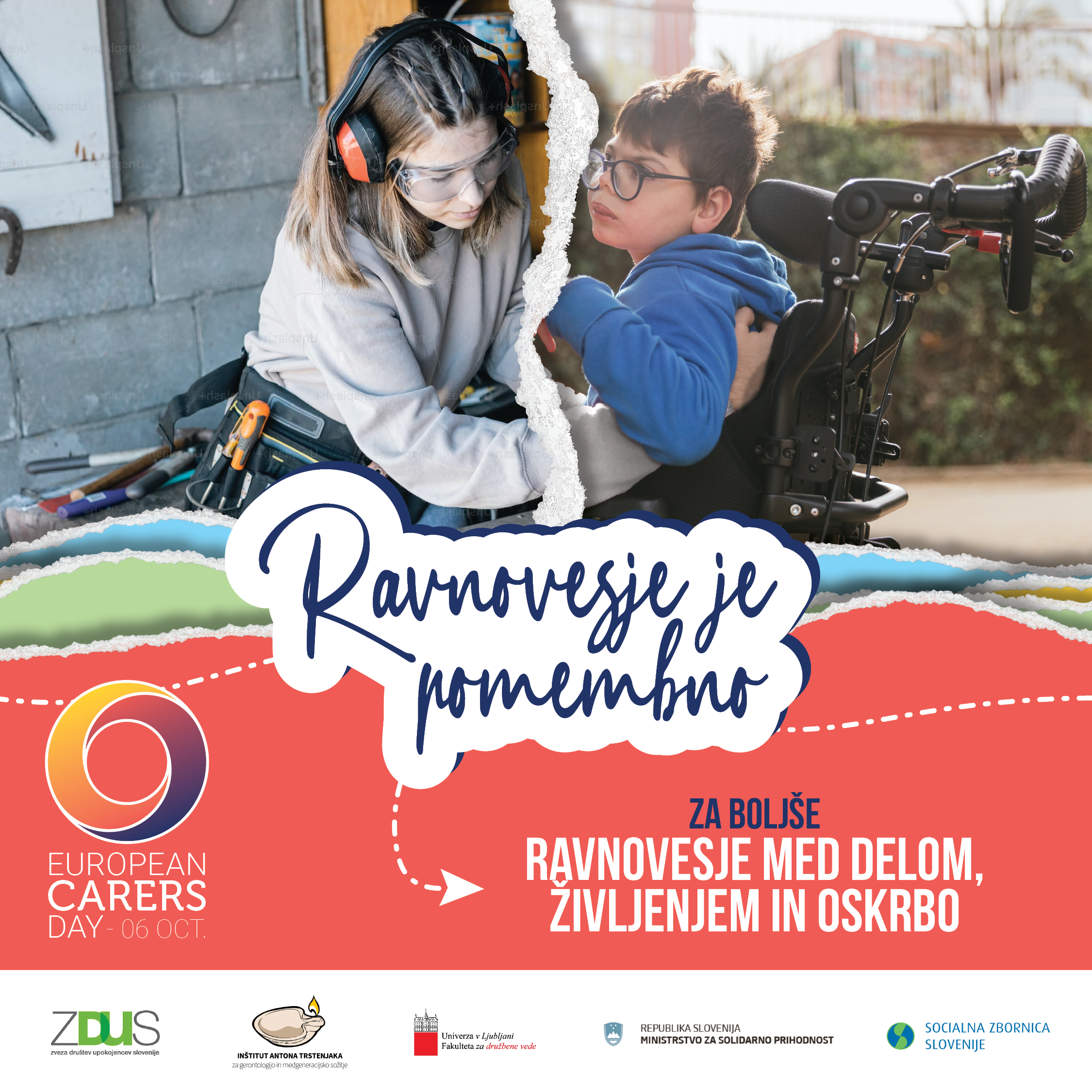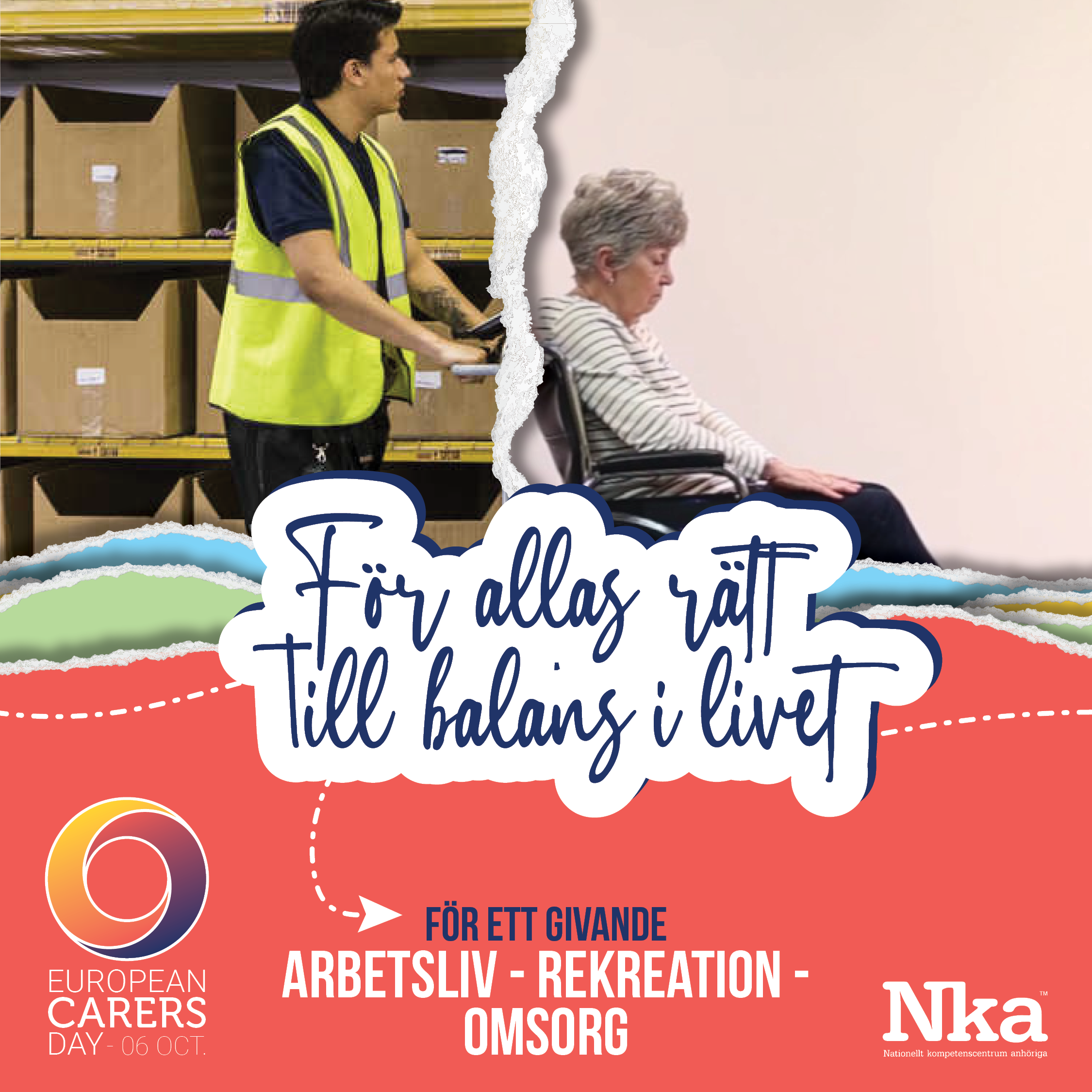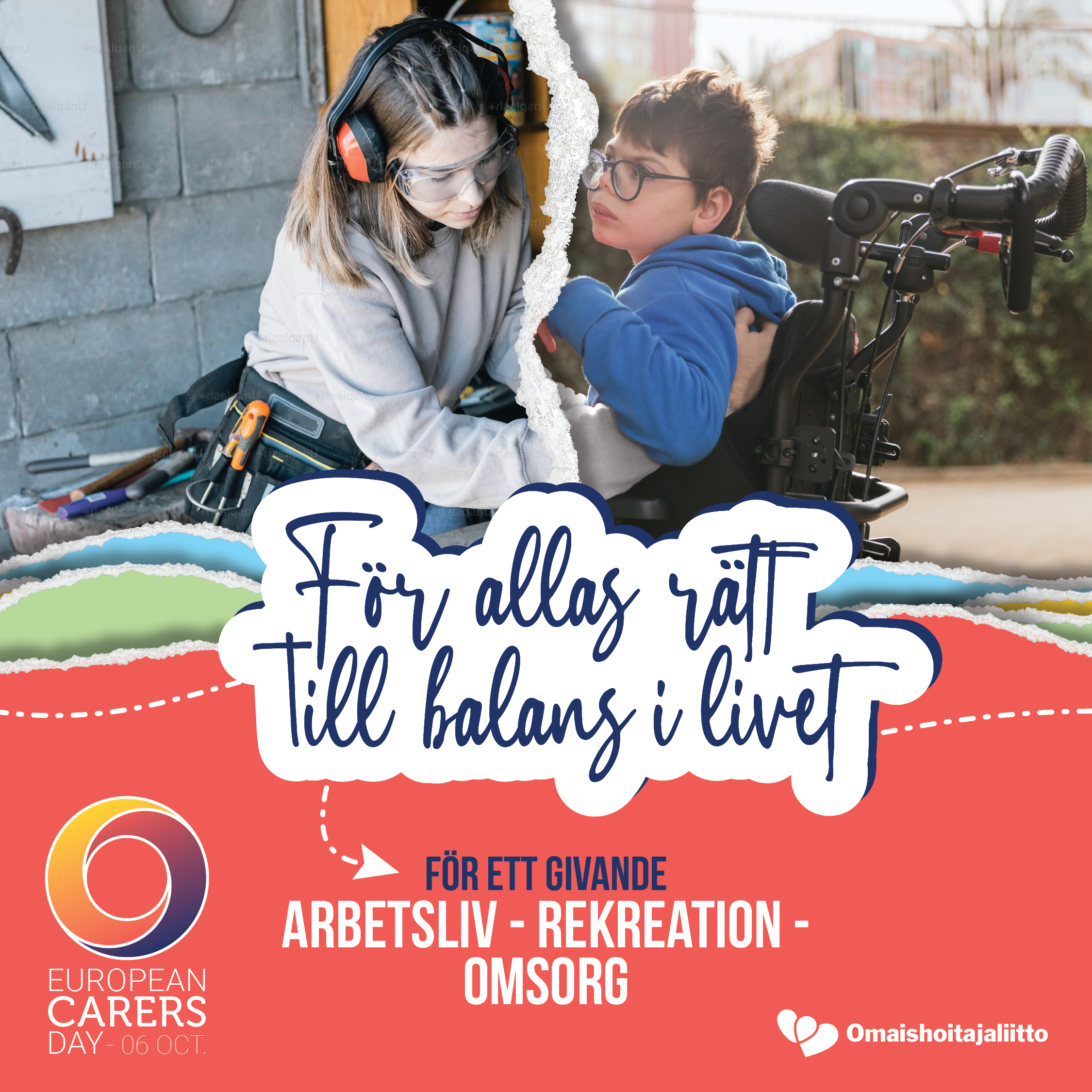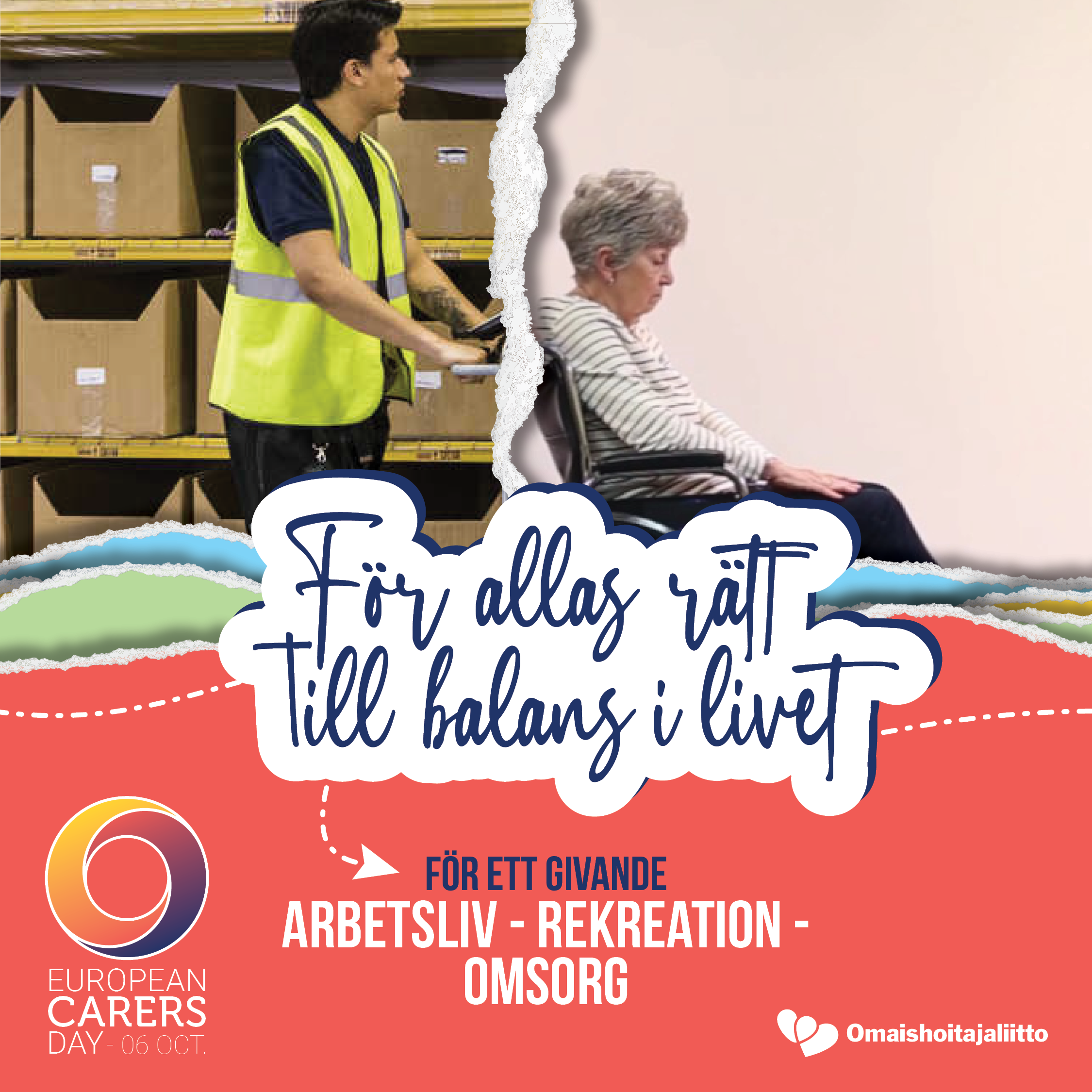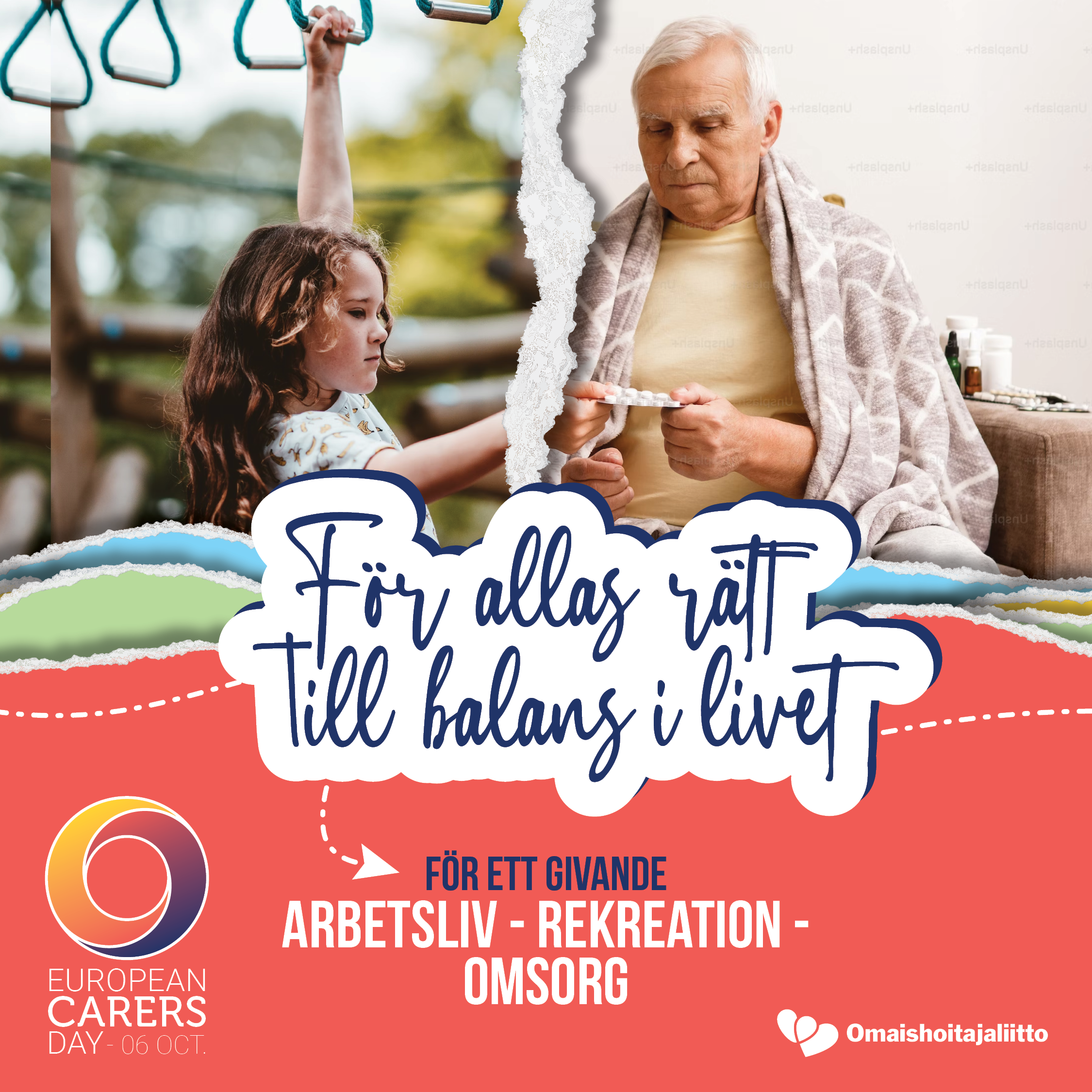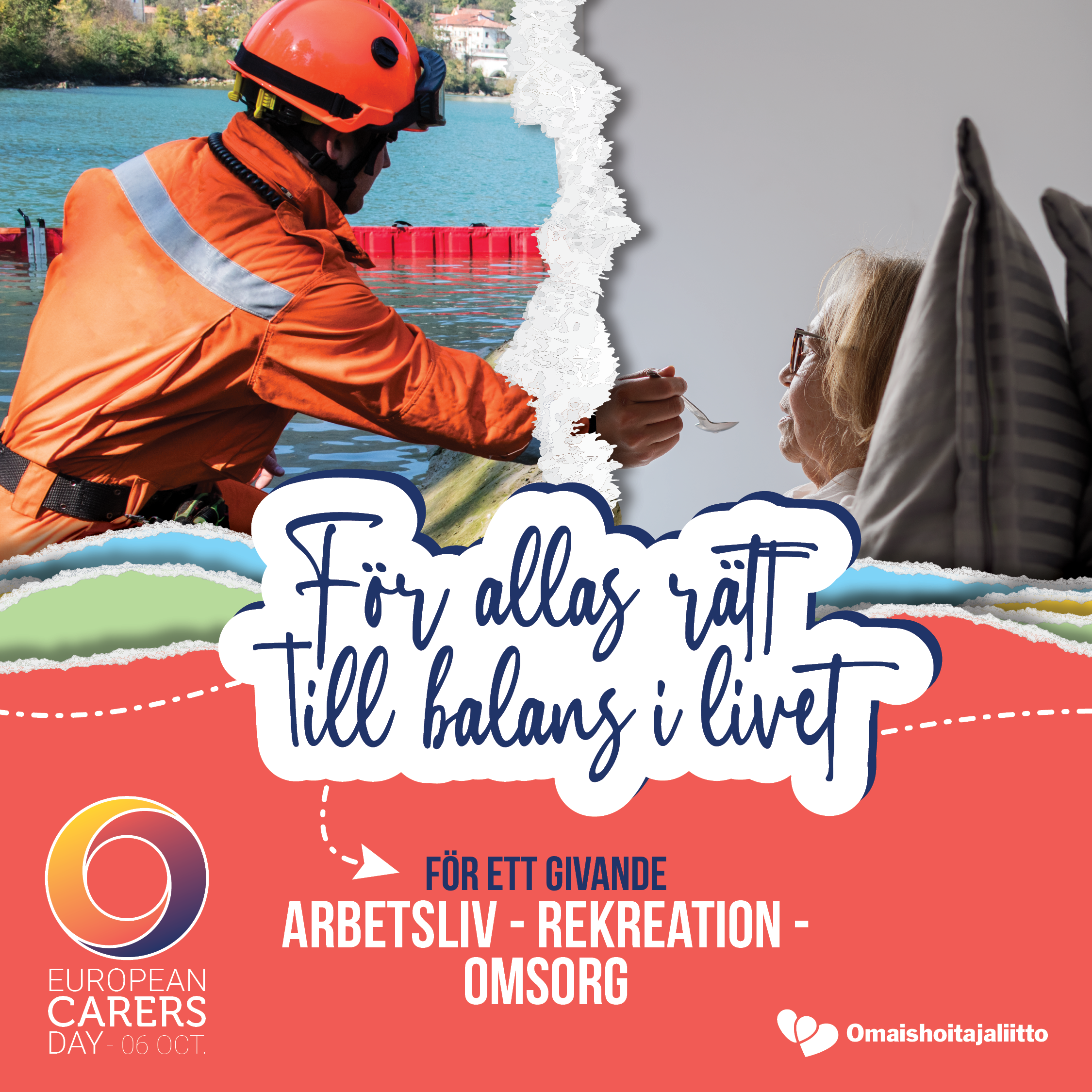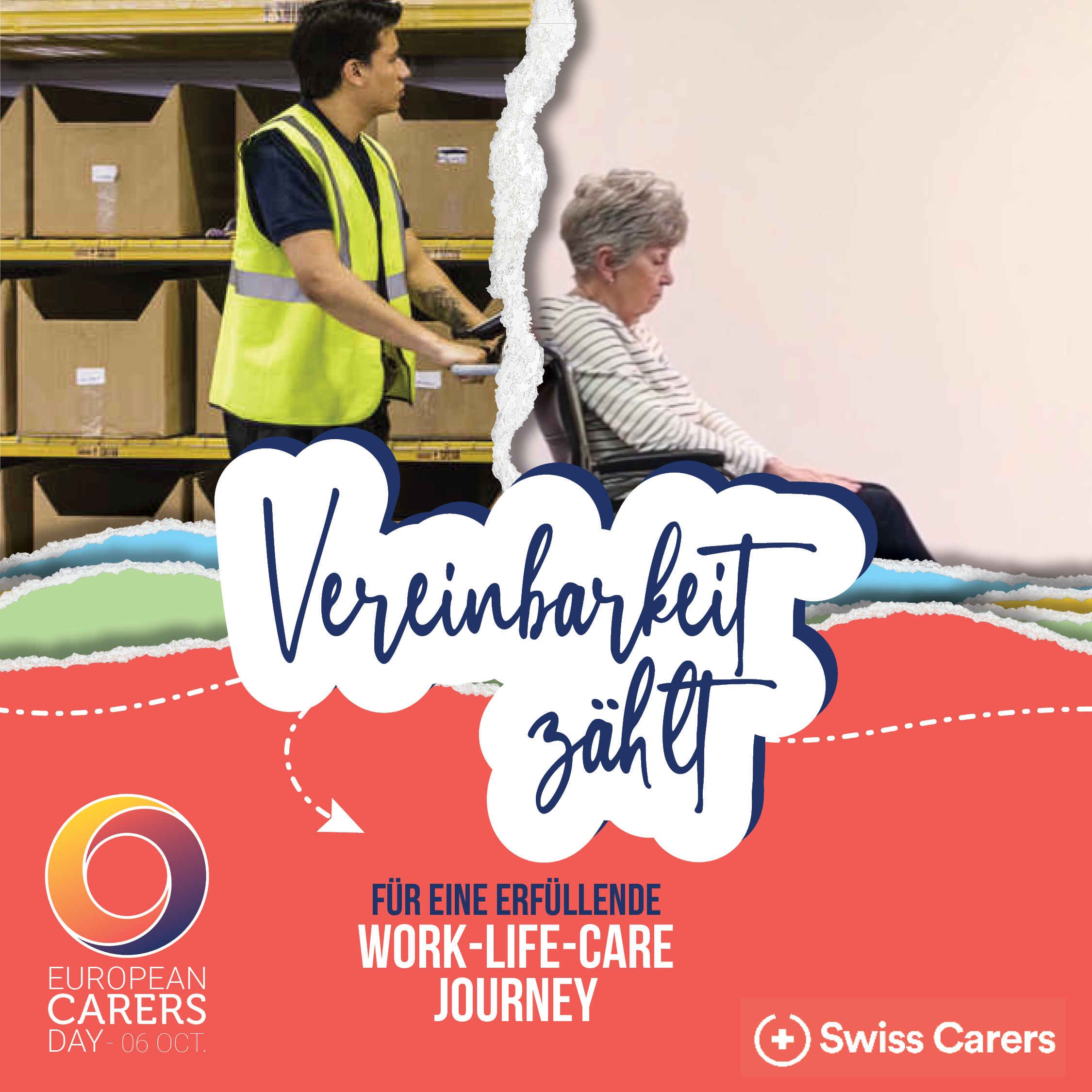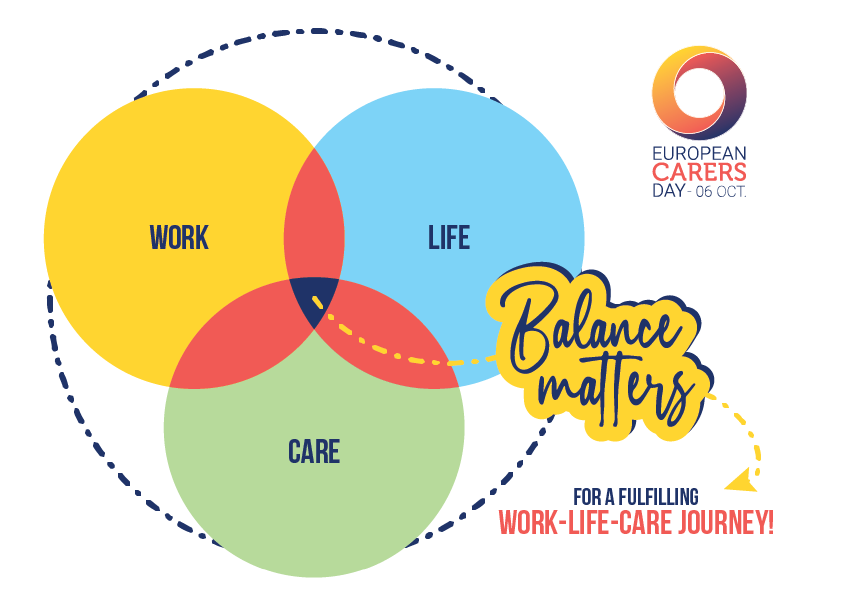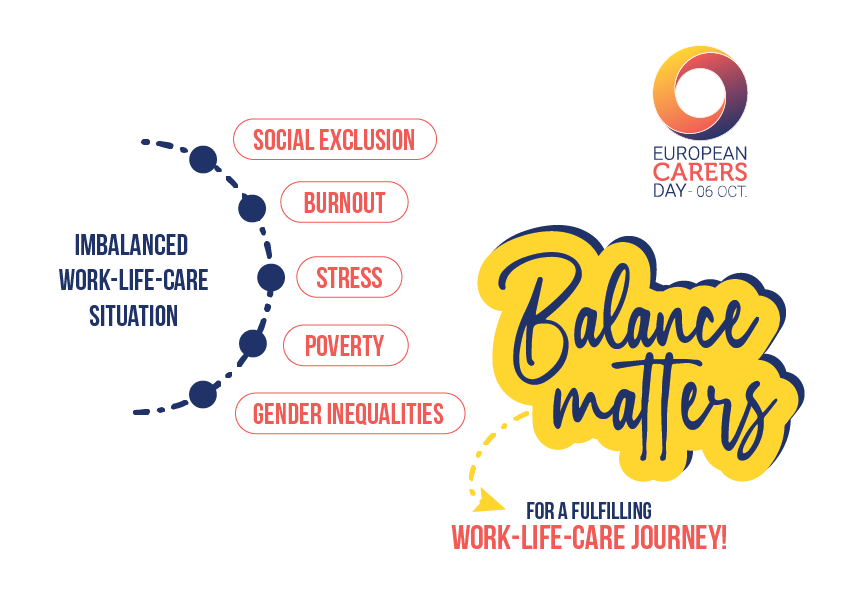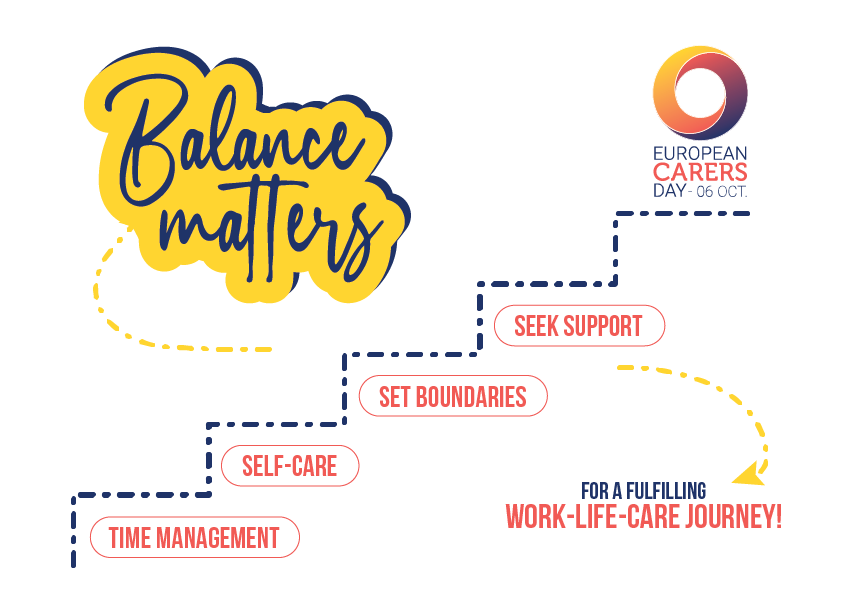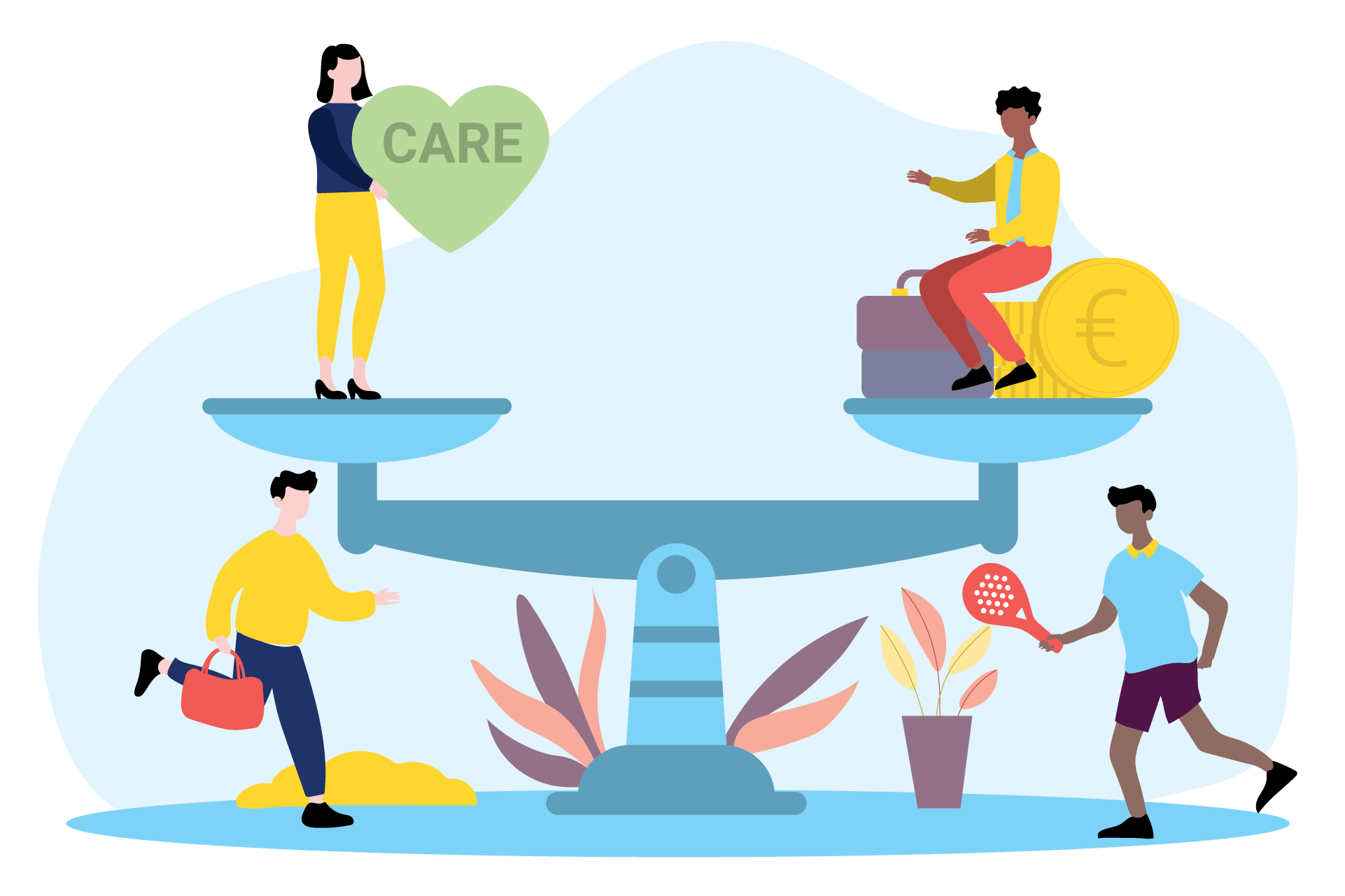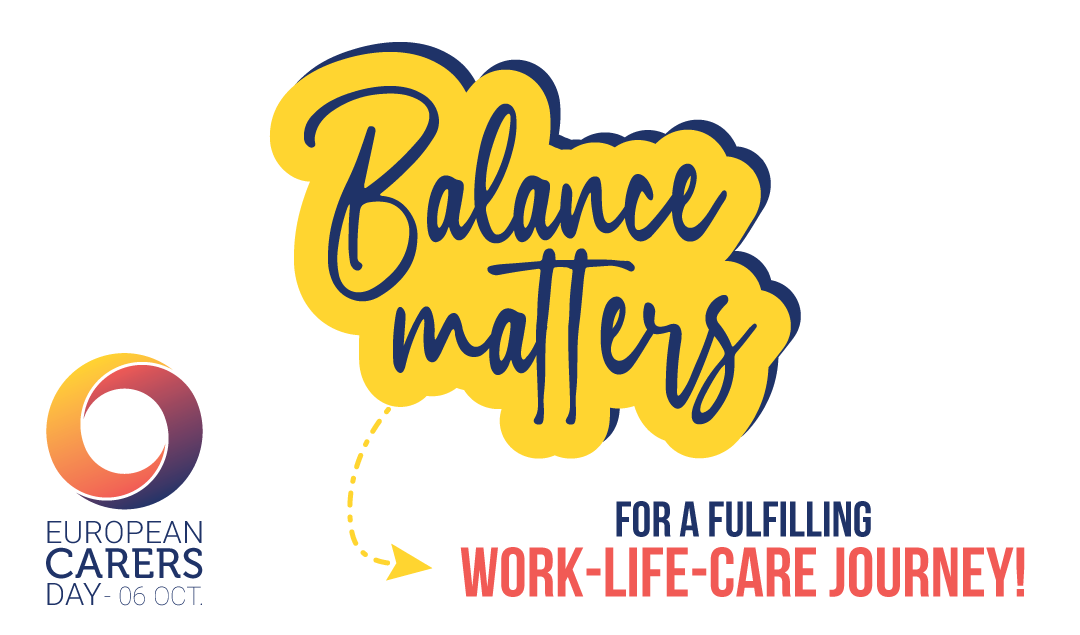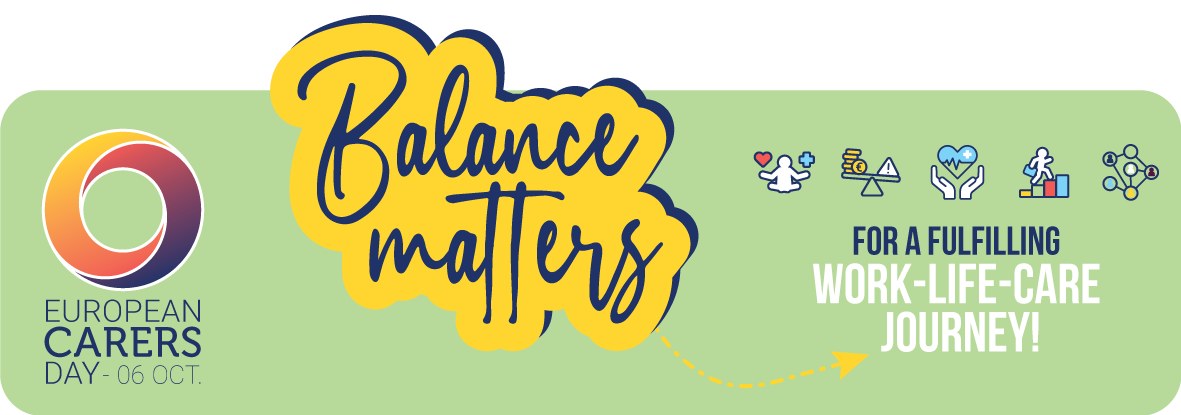
Why a European Carers Day
European Carers Day is celebrated every year on the 6th of October.
Why do carers need balance in their work-life-care journey?
Caring for loved ones is a noble and vital role that millions of individuals undertake every day. However, this responsibility often comes with challenges that can impact not only the carers’ own well-being but also their ability to maintain a fulfilling work-life-care balance. Balance matters because:
Main messages
Carers are the backbone of our society.
It’s time to recognize their contributions and support them in achieving a healthy work-life-care balance!
Caring for a loved one shouldn’t mean sacrificing your financial security.
Let’s end the cycle of poverty and social exclusion for carers!
Balancing work and care shouldn’t mean choosing between a paycheck and your loved ones.
Support work-life-care balance for all!
#CarersDay_EU
#BalanceMatters
#WorkLifeCare
What we are calling for
Our campaign is dedicated to raising awareness about the crucial need for work-life-care balance for carers across Europe. We believe that every individual, regardless of their caring responsibilities, deserves the opportunity to lead a fulfilling life. Here’s what we are calling for:
Join us in supporting this cause. Together, we can create a more inclusive and compassionate society that empowers carers and values the importance of balance in their work-life-care journey.
The European Carers Day communication campaign is generously supported by Merck.

Campaign material
You will find here the material that was developed for the campaign; logo, posters, posts, press releases etc.
Do not hesitate to get in touch with us should you be willing to translate it in your language.
The CARE MATTERS Podcast is produced by Dan Williamson for the Centre for Care and CIRCLE at the University of Sheffield.
Frequently Asked Questions
What is an informal carer?
Informal carers are individuals who provide unpaid care and support to family members, friends, or loved ones with physical or mental health challenges, disabilities, or chronic illnesses.
Last Updated on October 3, 2023
Why is work-life-care balance important for carers?
Work-life-care balance is essential for carers to ensure they can manage their caring responsibilities without compromising their own well-being, professional growth, and personal lives.
Last Updated on October 3, 2023
What challenges do carers face in achieving balance?
Carers often face challenges such as time constraints, emotional stress, financial strain, and difficulties in finding flexible work arrangements that accommodate their caregiving responsibilities.
Last Updated on October 3, 2023
How can employers support carers in the workplace?
Employers can support carers by offering flexible work options, understanding leave policies, creating a supportive work environment, and providing resources to help carers manage their responsibilities.
Last Updated on October 3, 2023
What resources are available for carers seeking balance?
There are resources such as caring guides, time management tools, self-care tips, and support networks available to help carers balance their work, life, and caregiving responsibilities. Do not hesitate to contact our Member in your country for resources available next to you.
Last Updated on October 3, 2023
Is there financial assistance available for carers?
Yes, some regions offer financial support through carer allowances, tax benefits, and social welfare programs to alleviate the financial burden on carers. Do not hesitate to contact our Member in your country and inquire about what support is available next to you.
Last Updated on October 3, 2023
Are there legal protections for carers in the workplace?
Some countries have legal protections that prevent discrimination against carers in the workplace and ensure they have the right to request flexible work arrangements. Do not hesitate to contact our Member in your country and inquire about the legal protections existing in your country.
Last Updated on October 3, 2023
How can I support a friend or family member who is a carer?
You can offer emotional support, lend a helping hand, and be understanding of their commitments. Educating yourself about their caring role can already make a significant difference.
Last Updated on October 3, 2023
Last Updated on October 3, 2023









